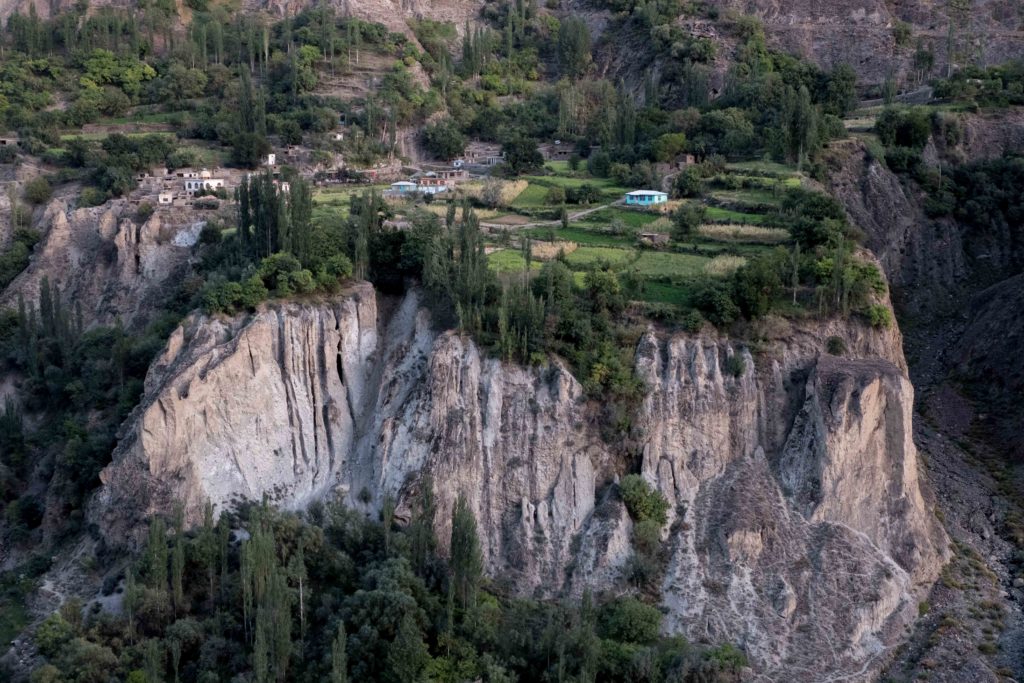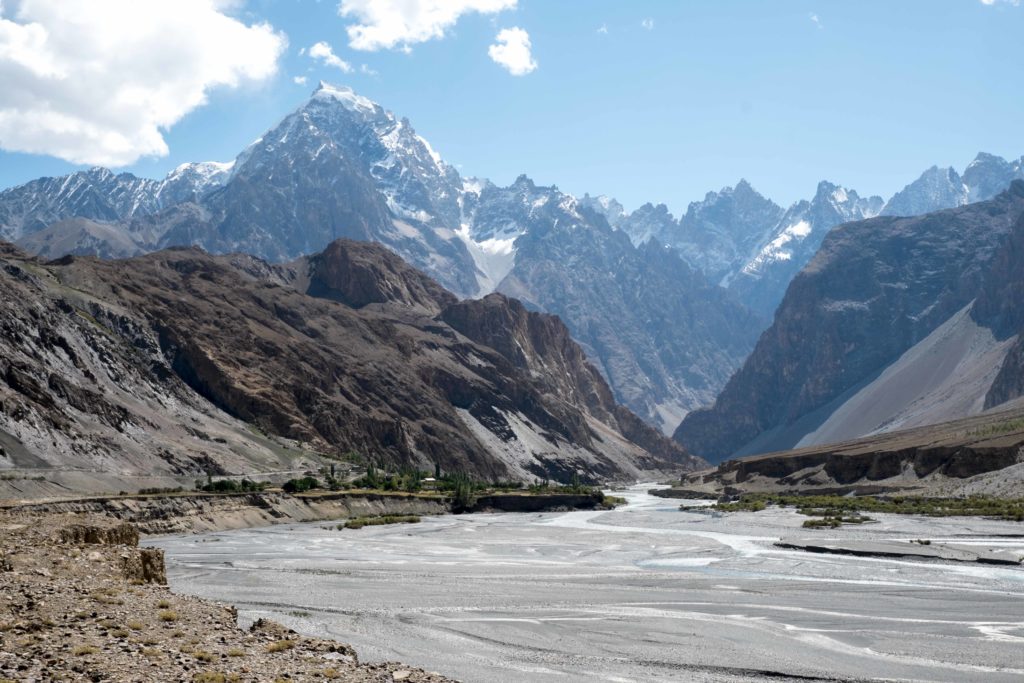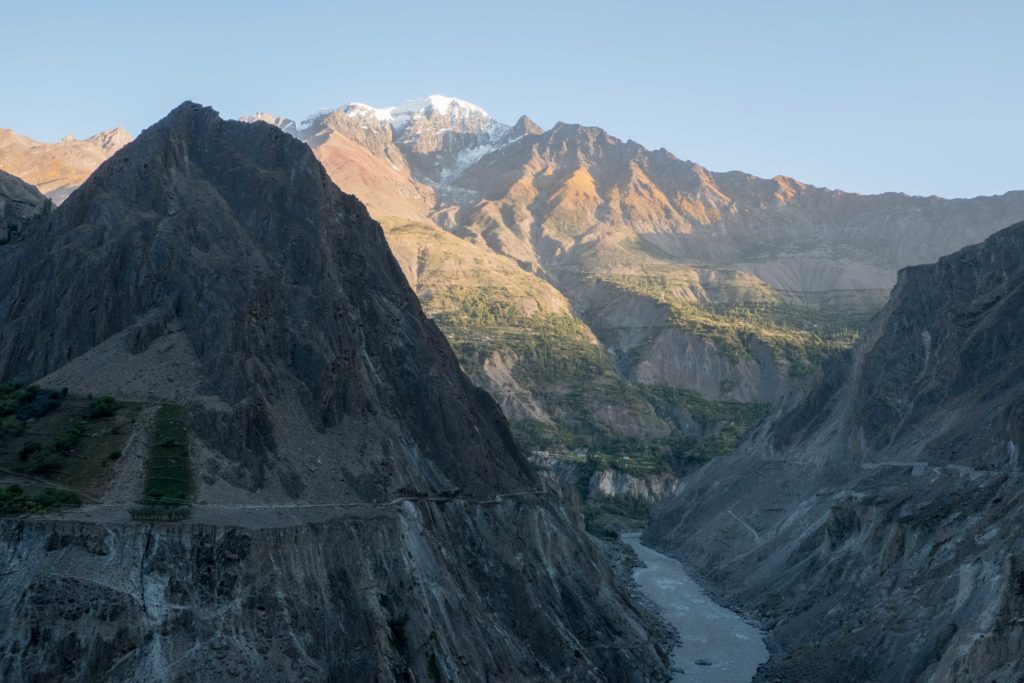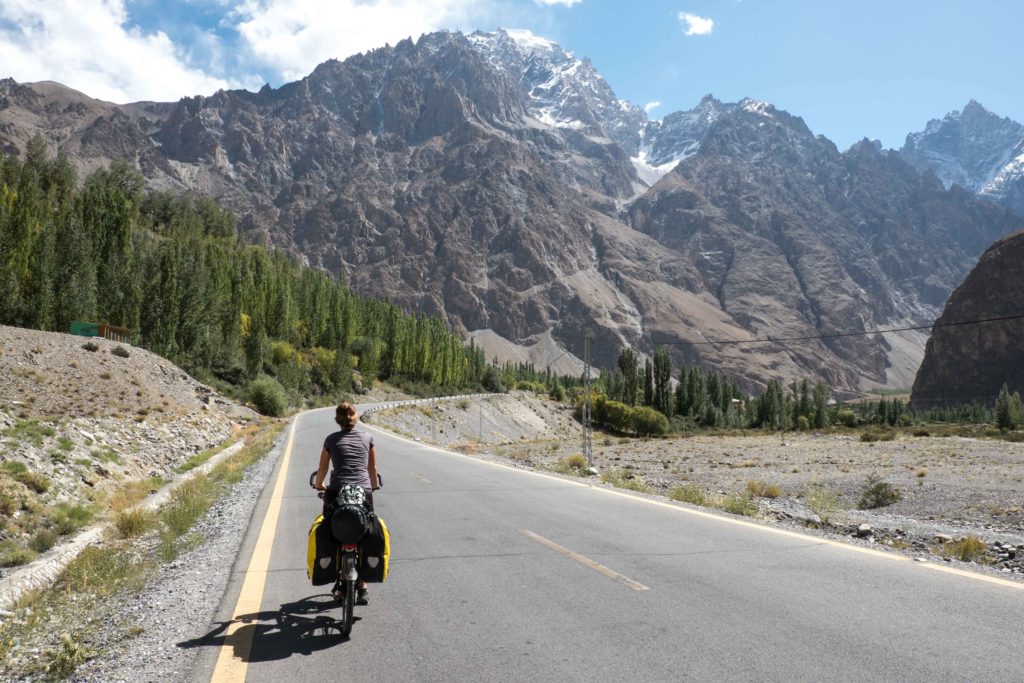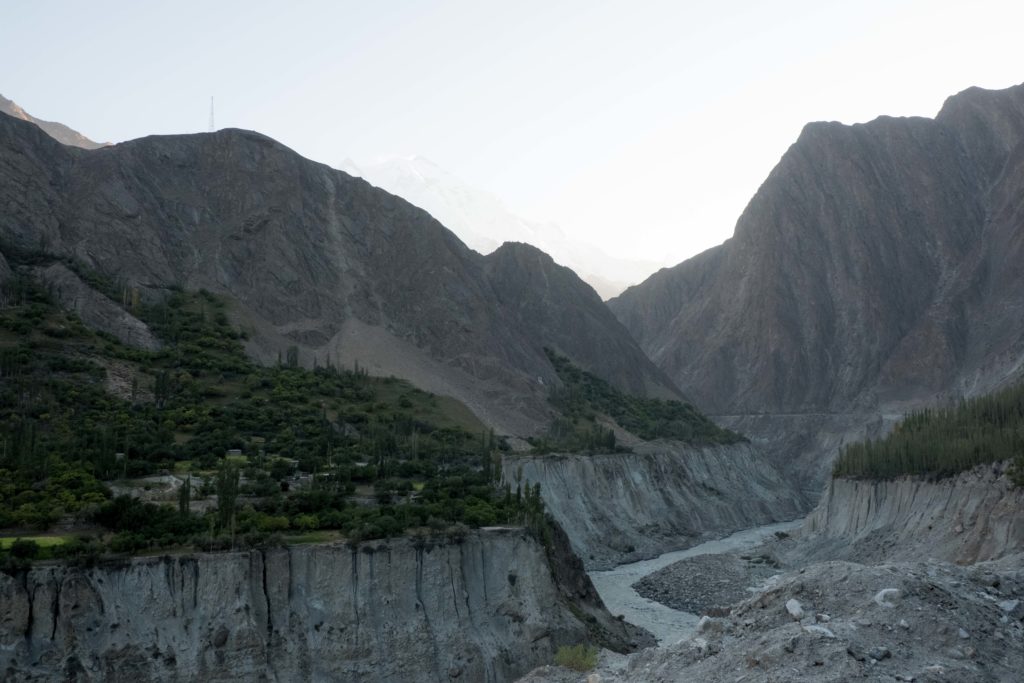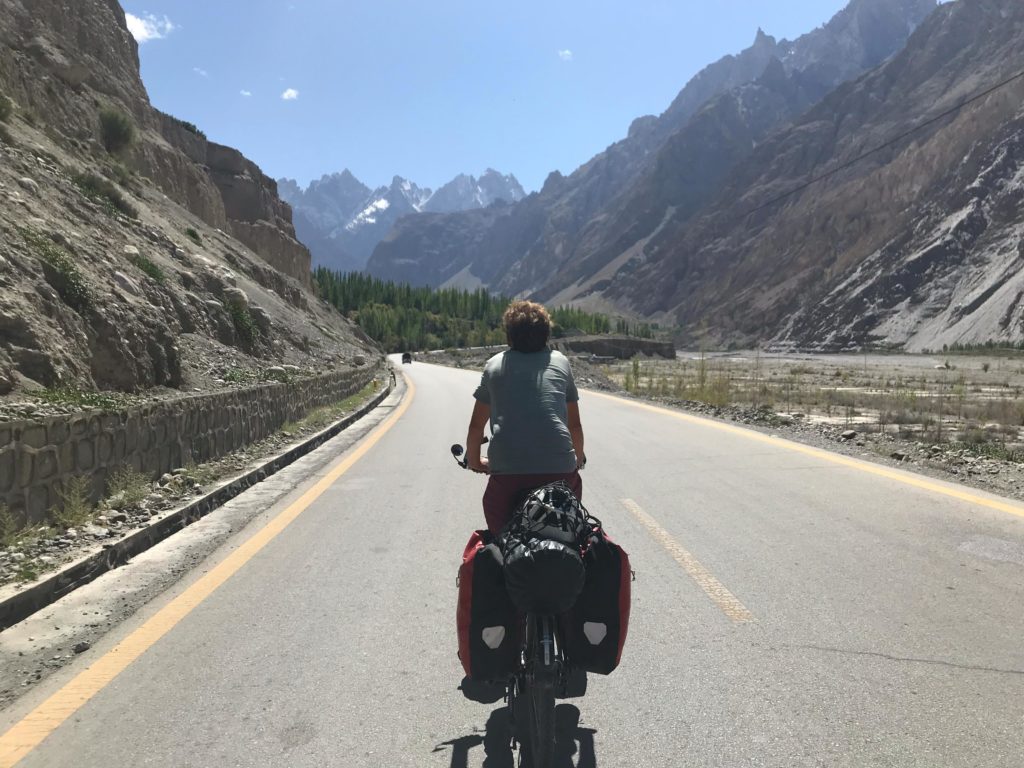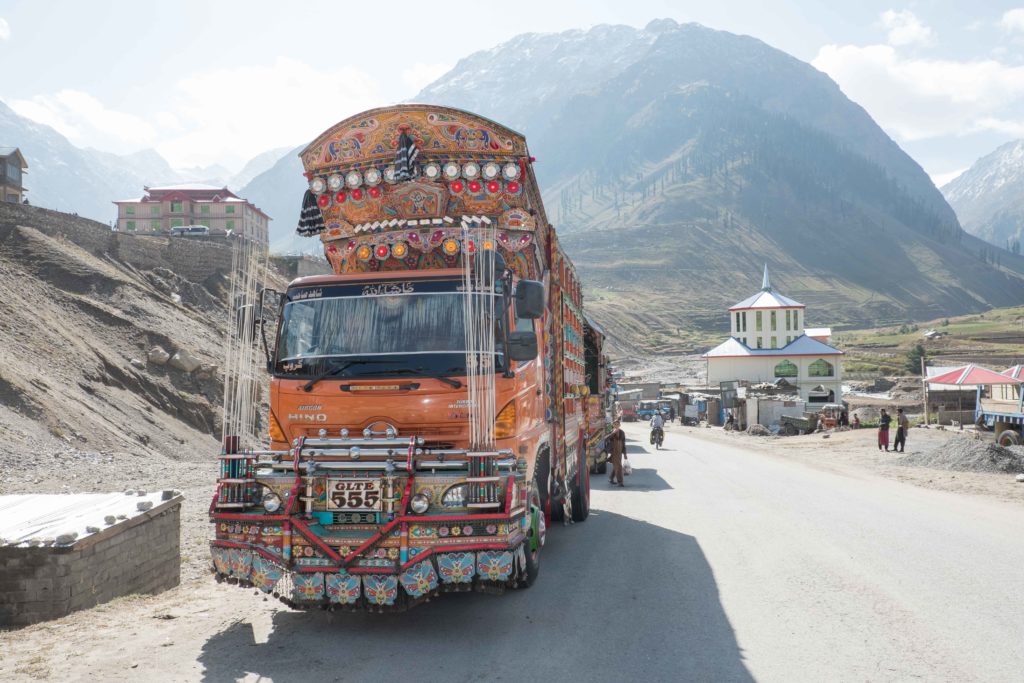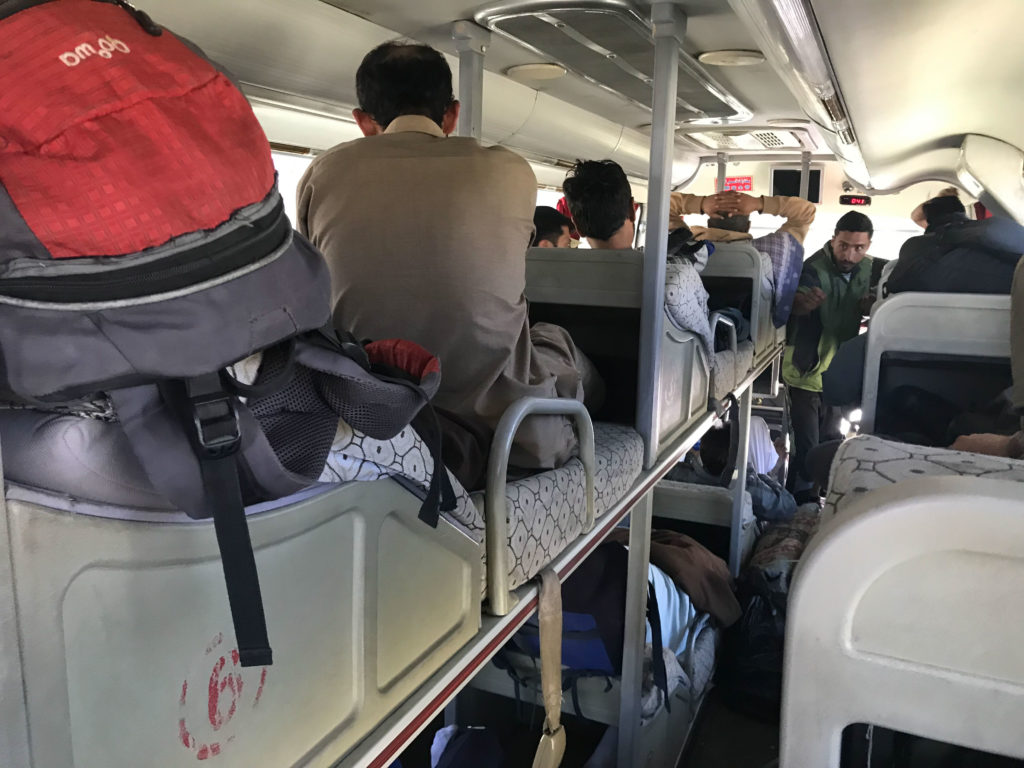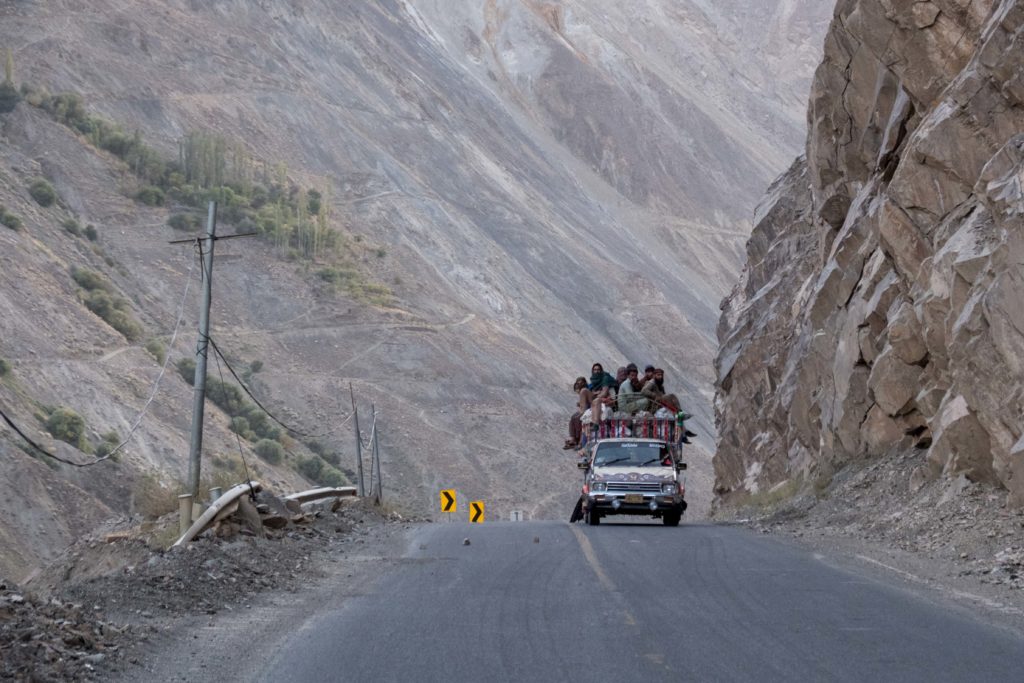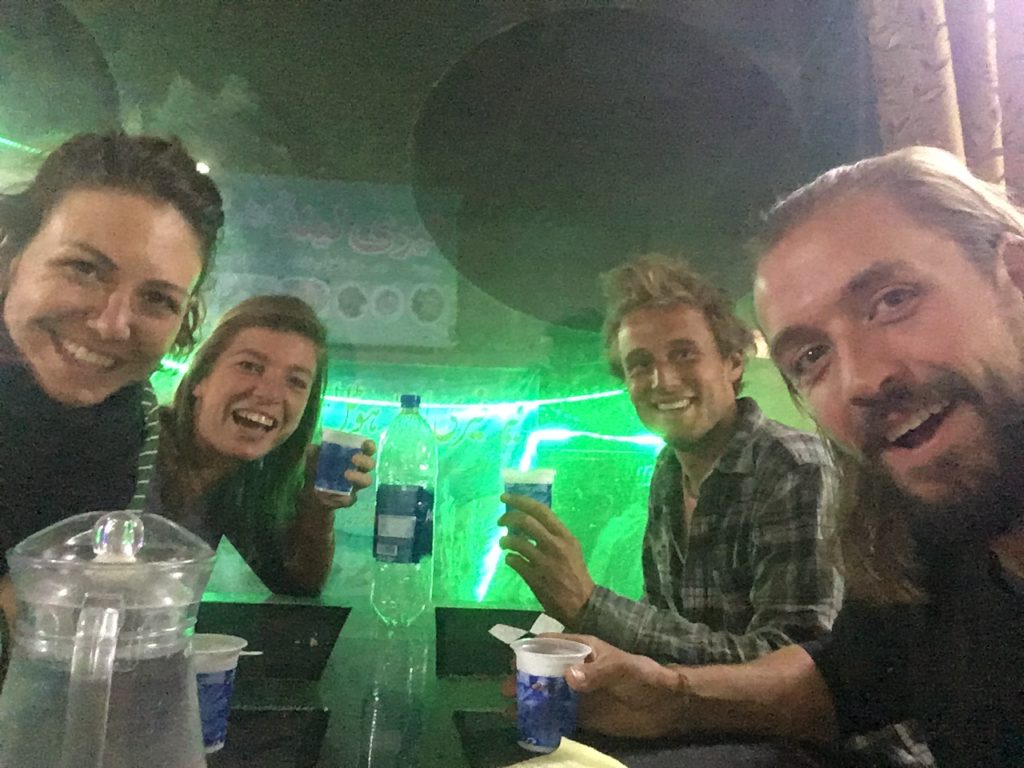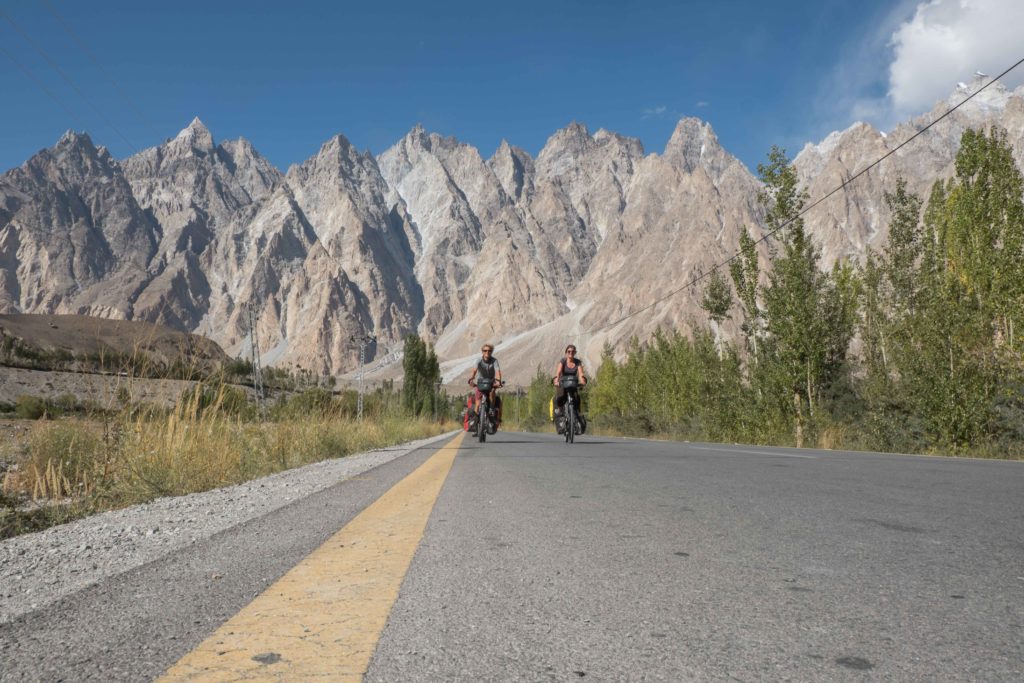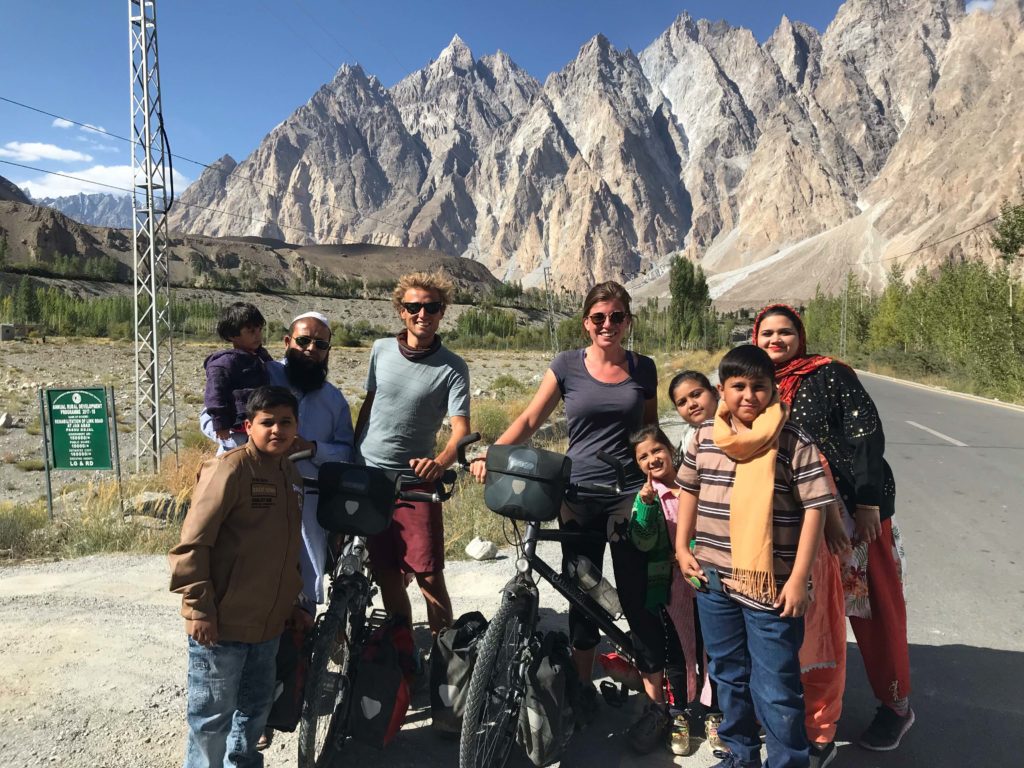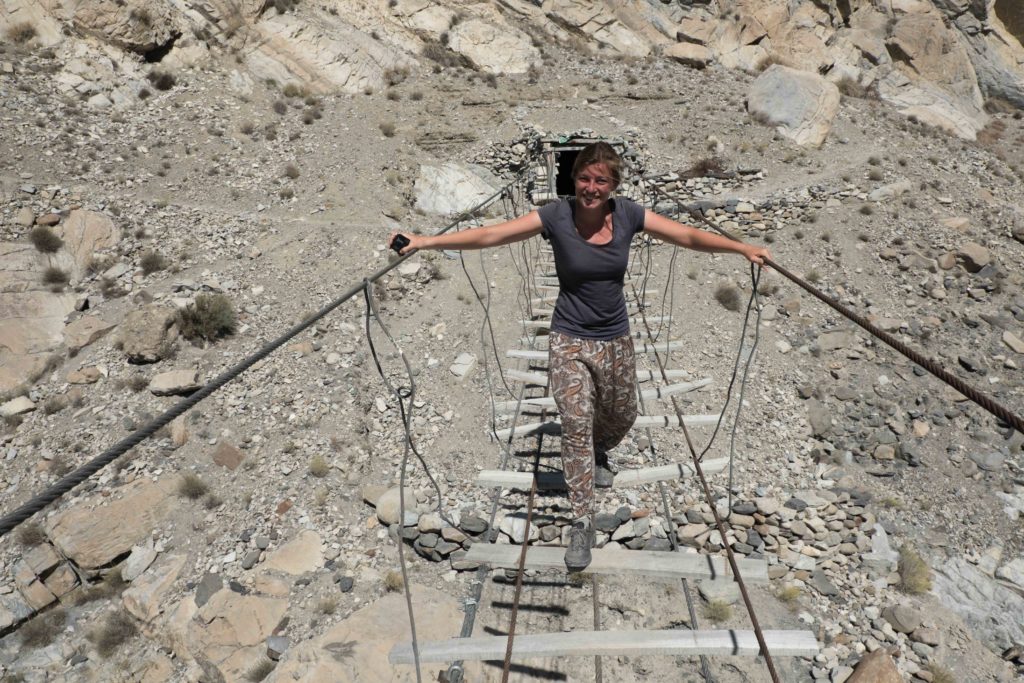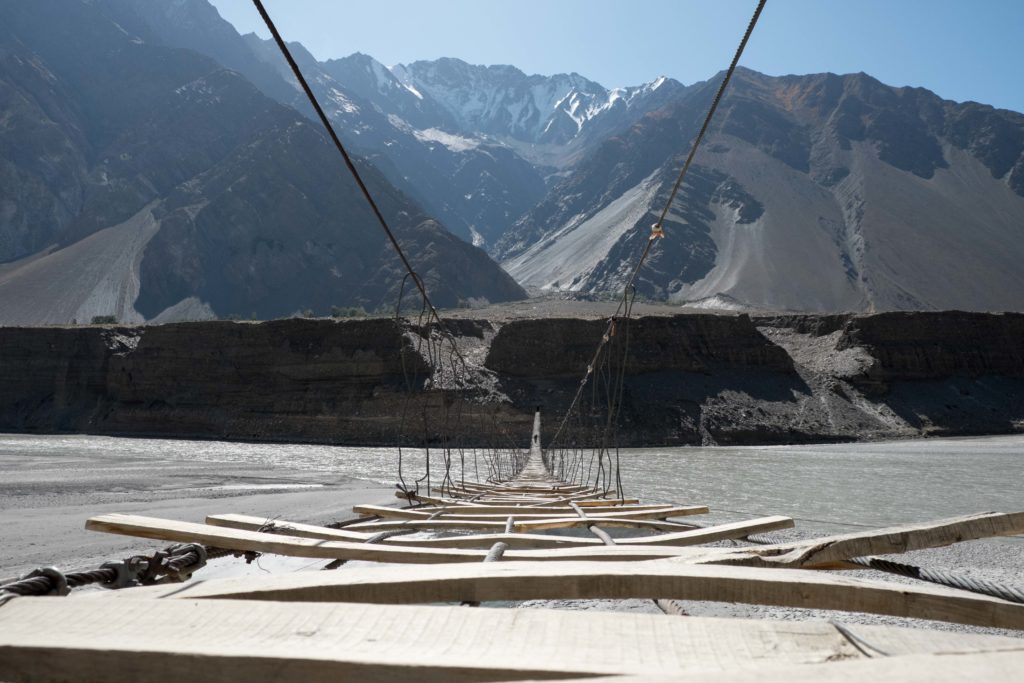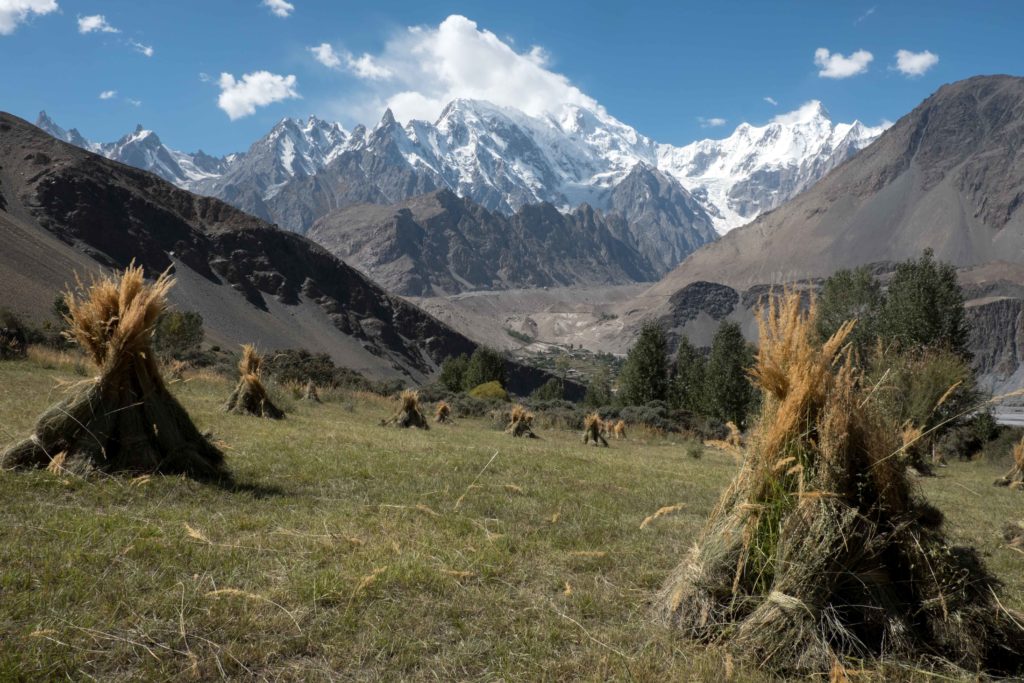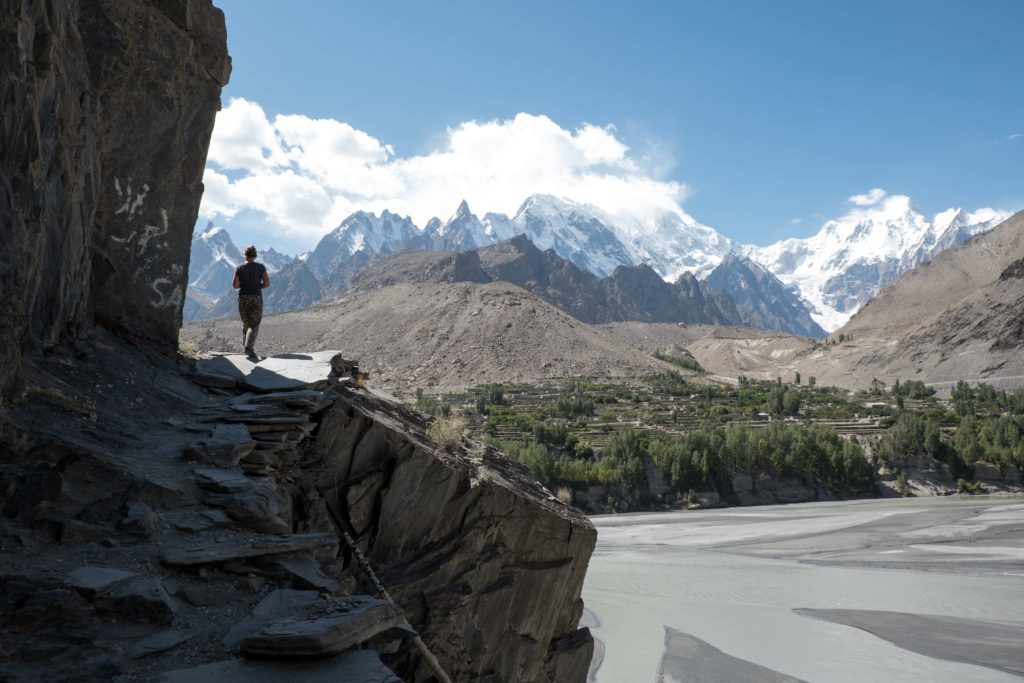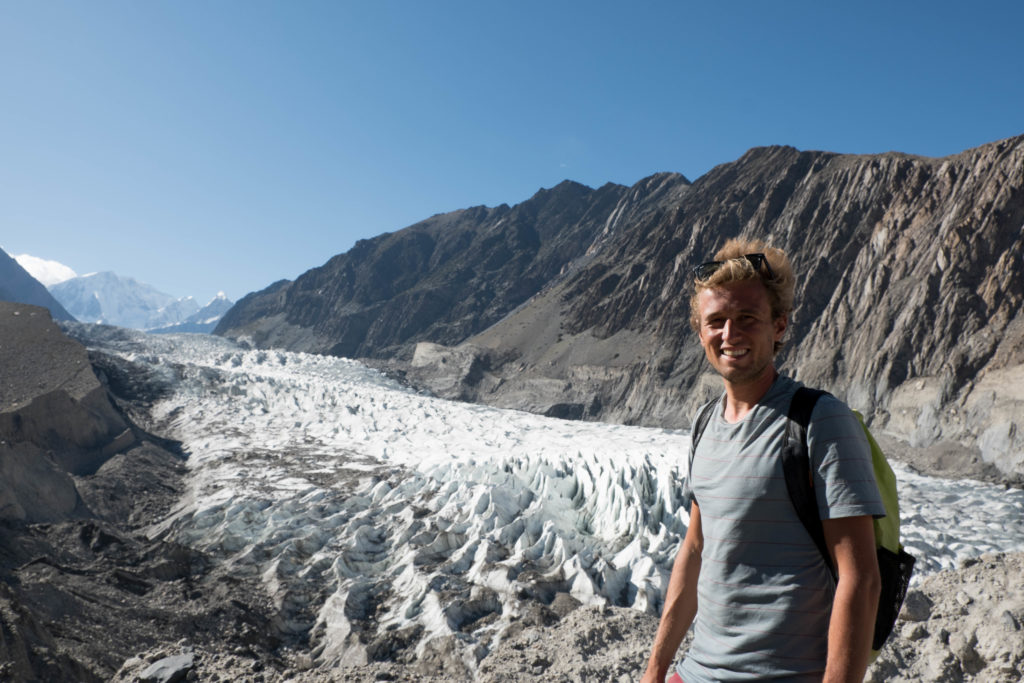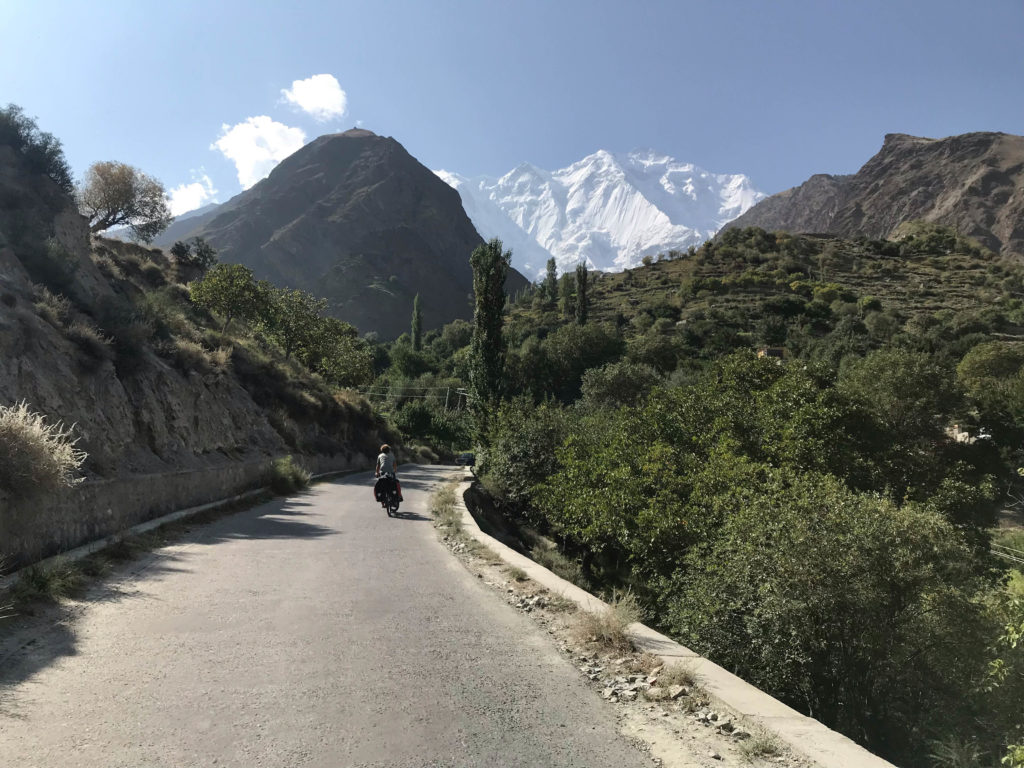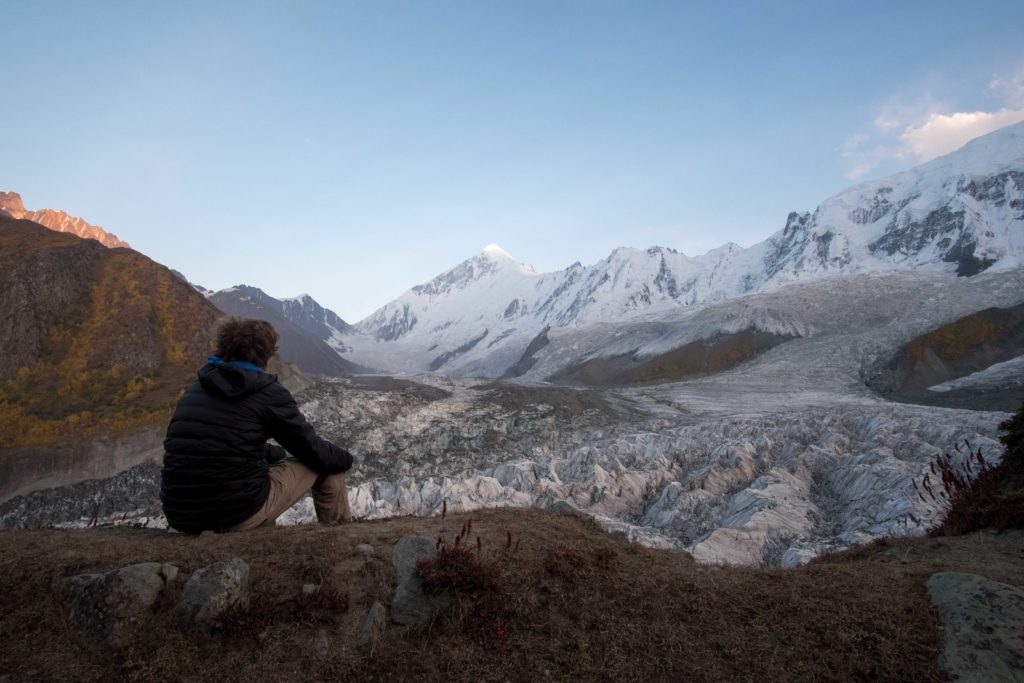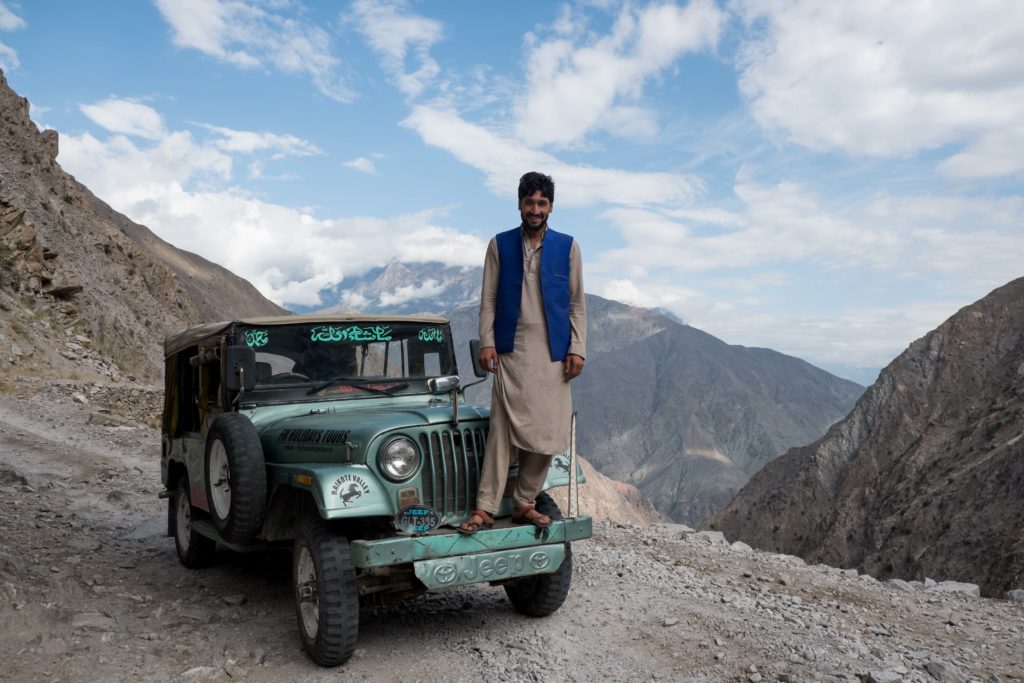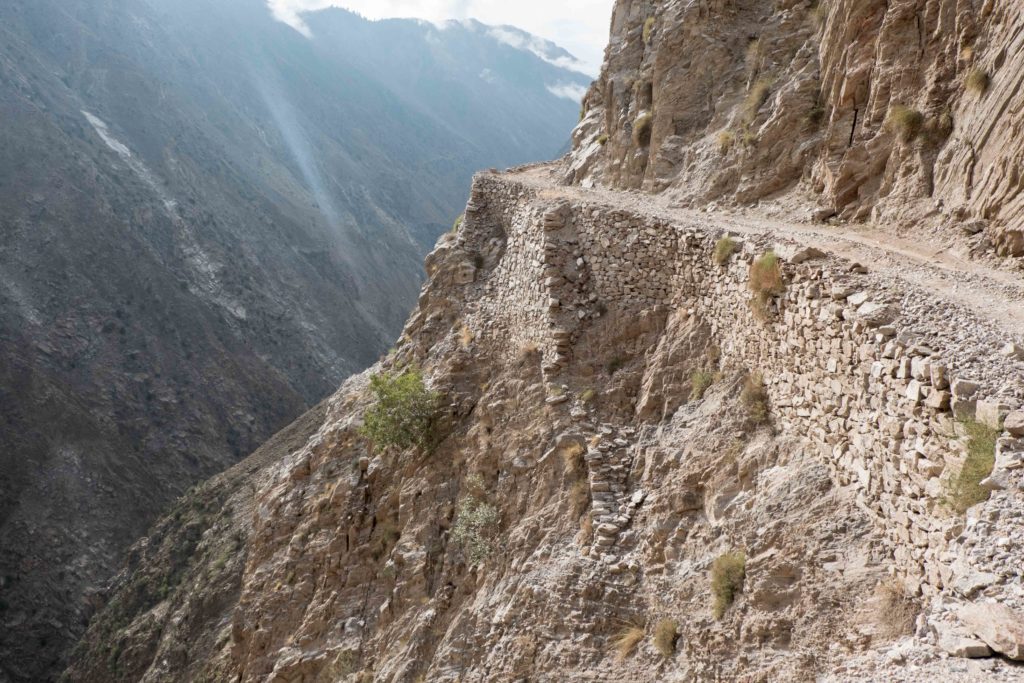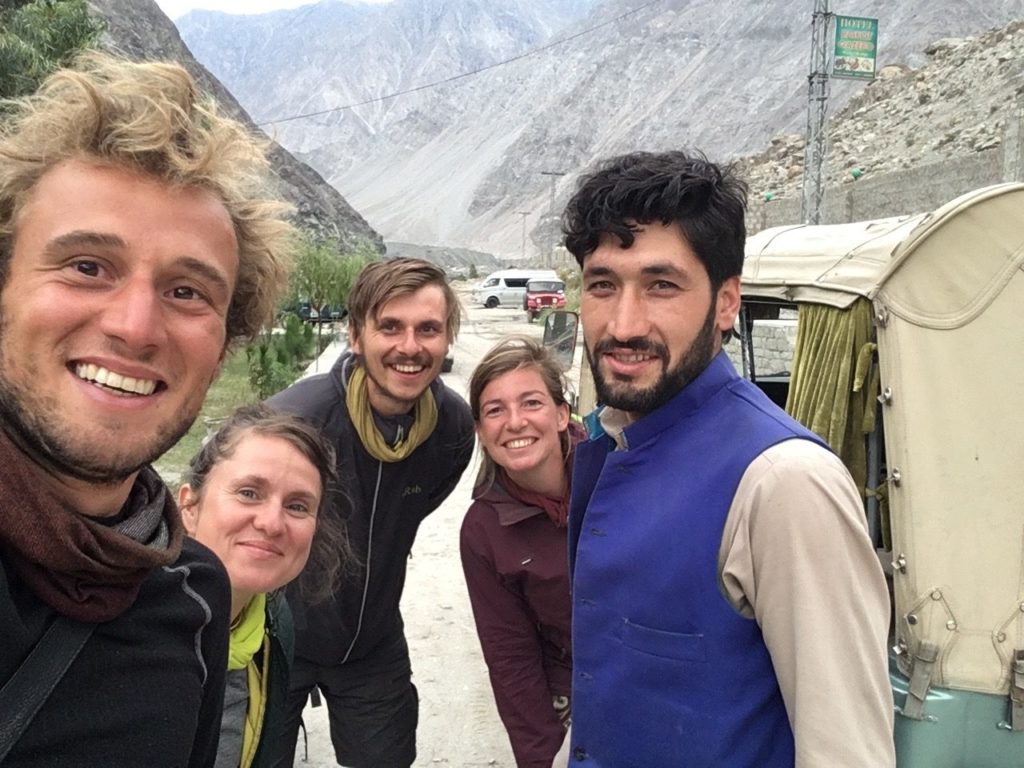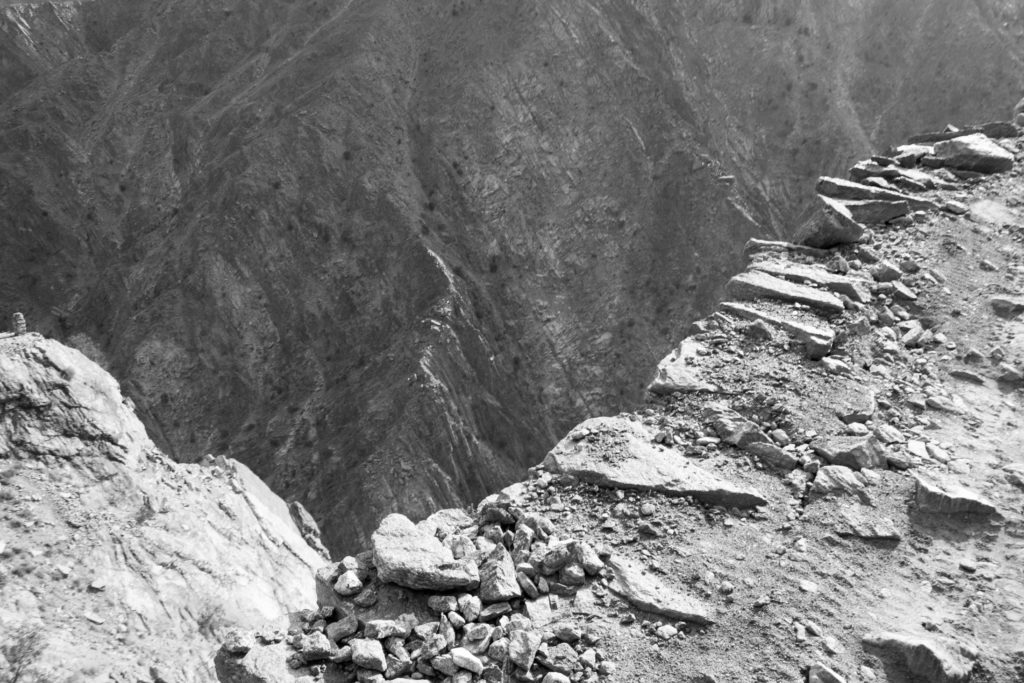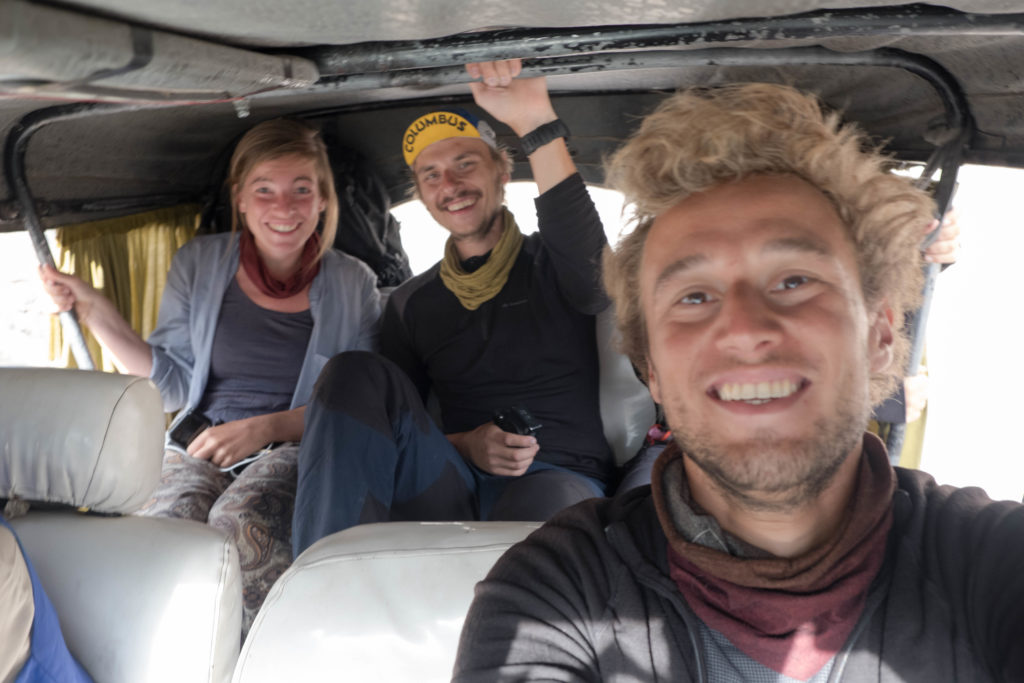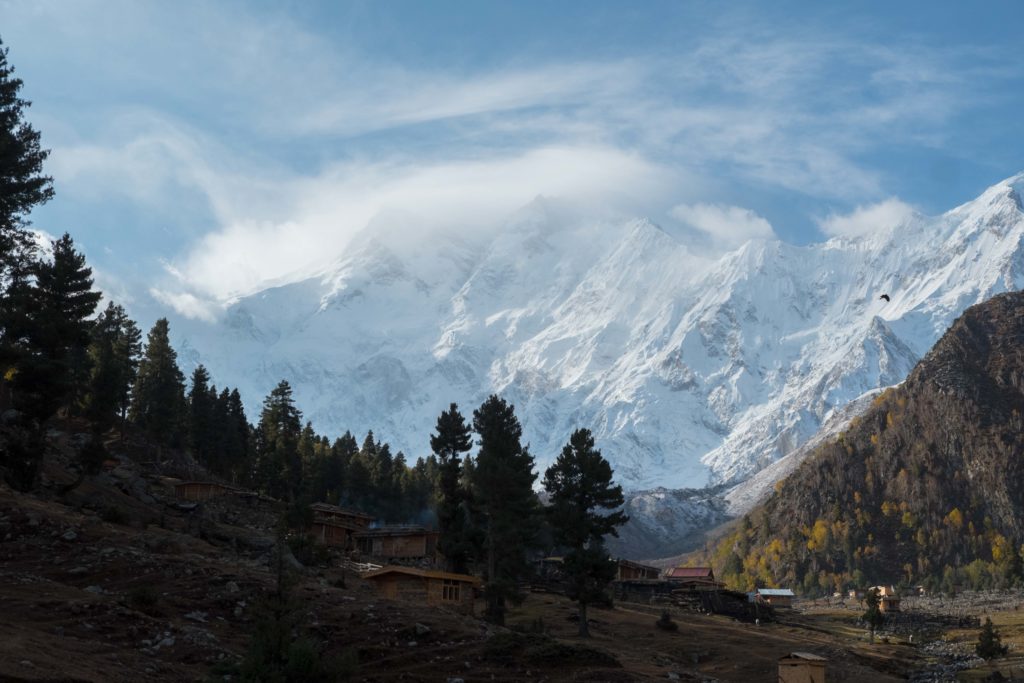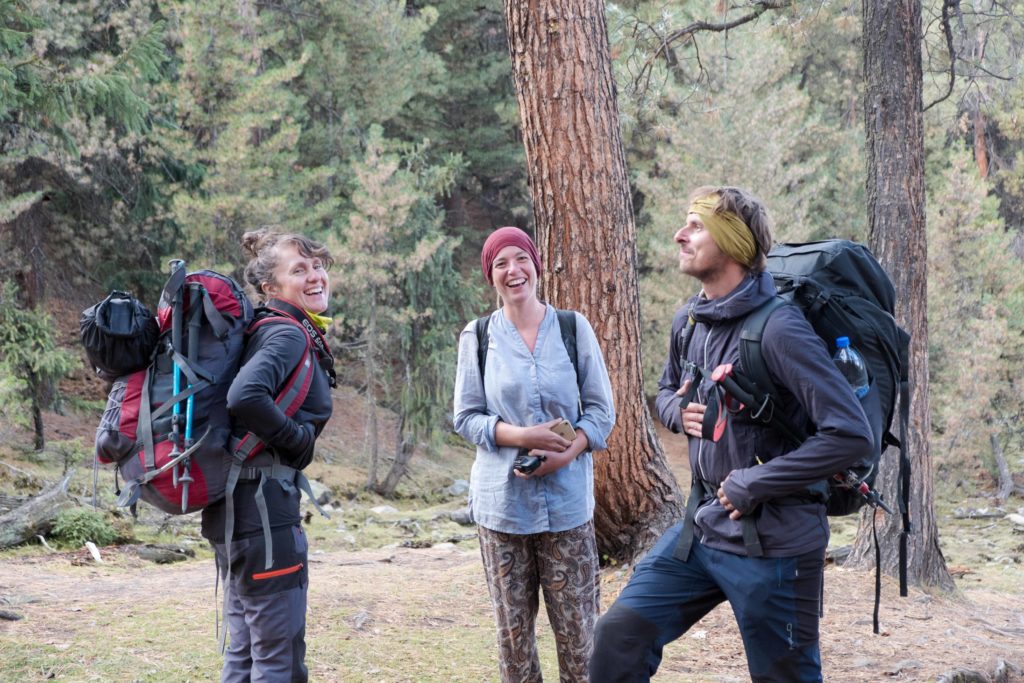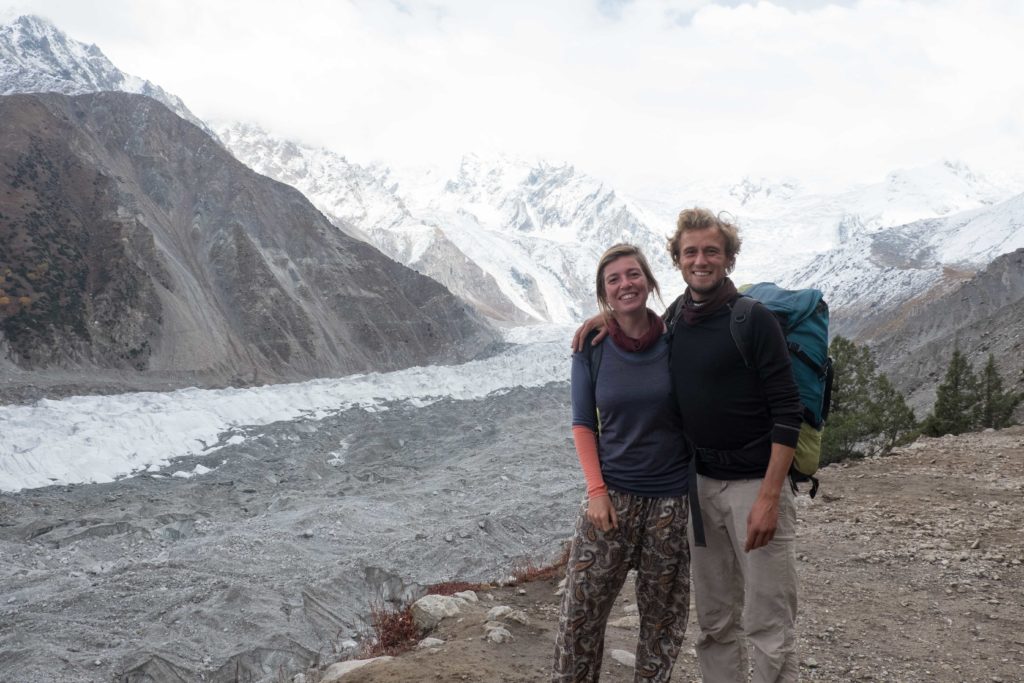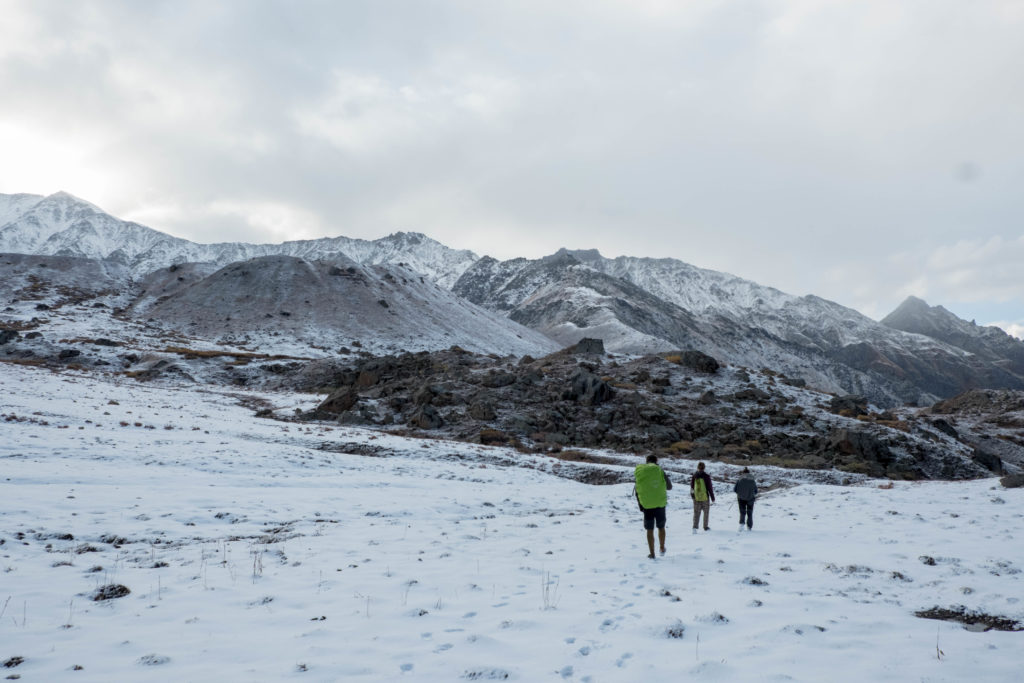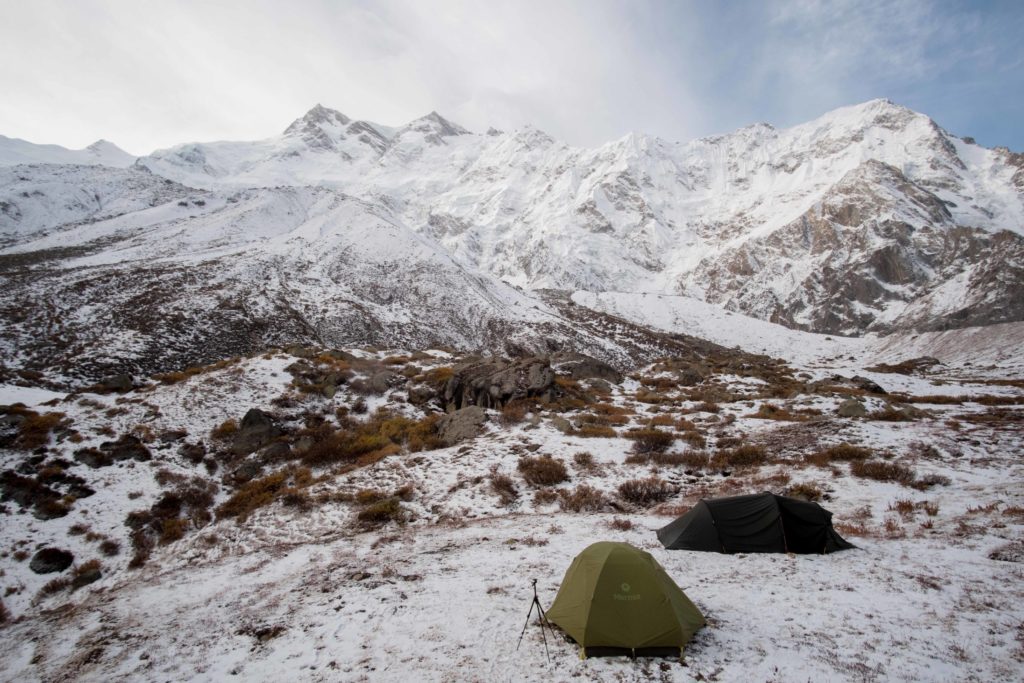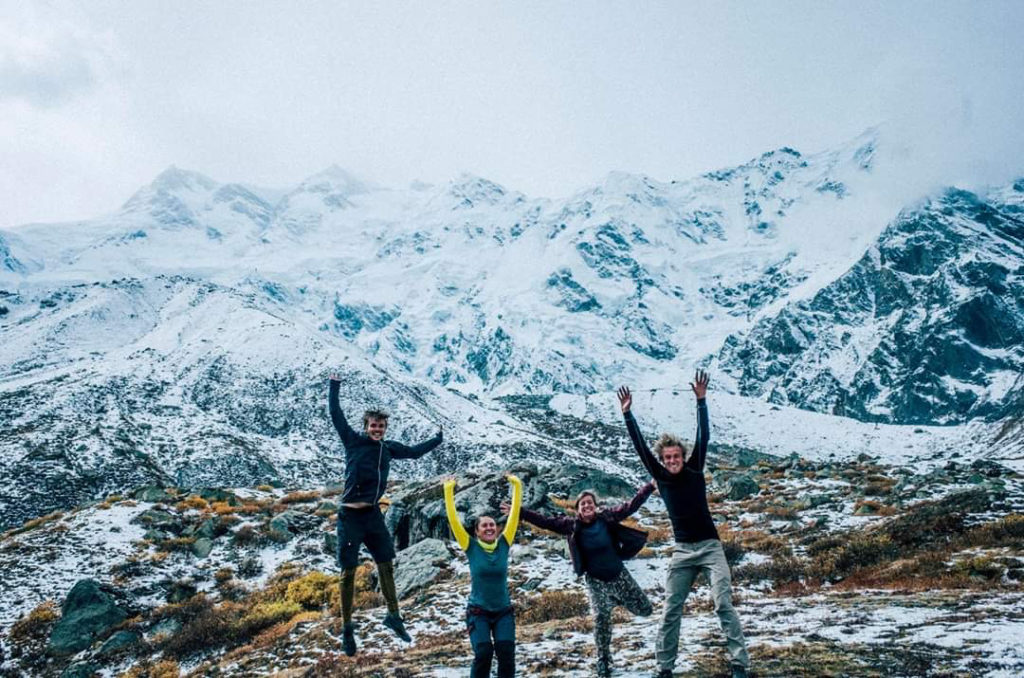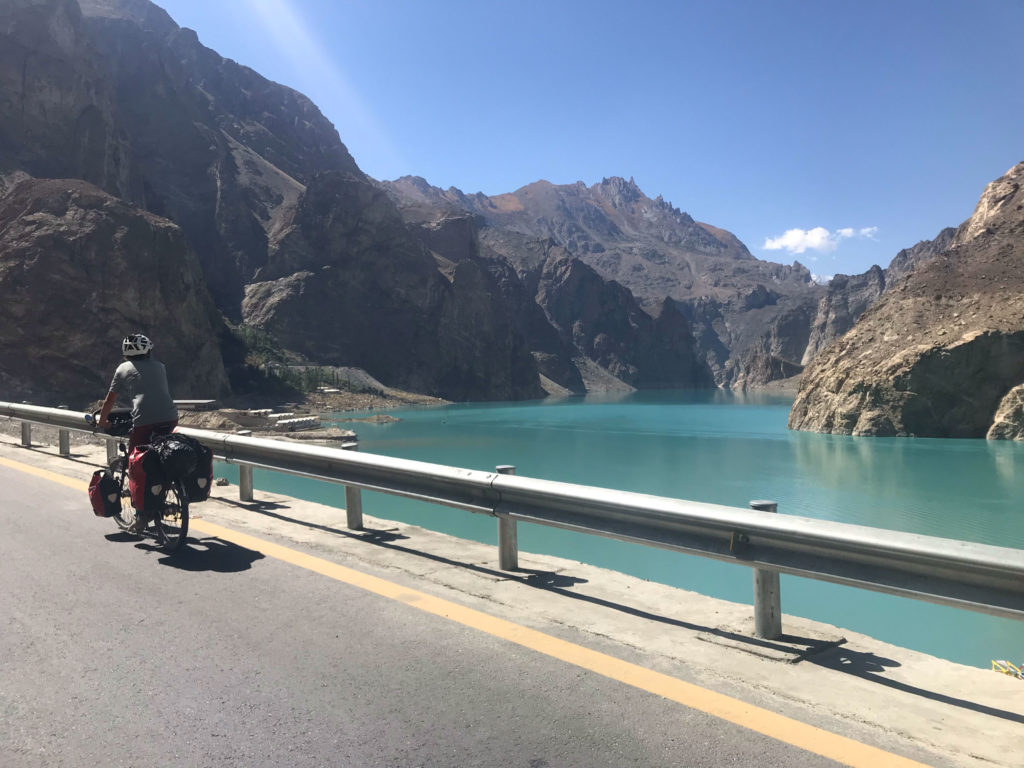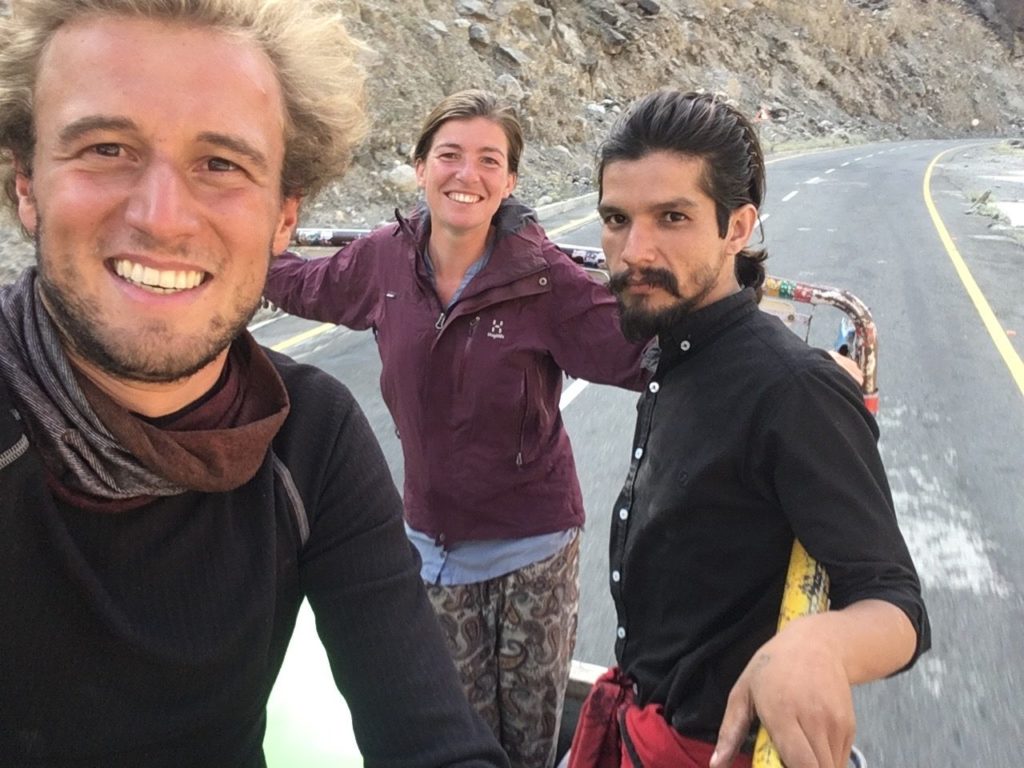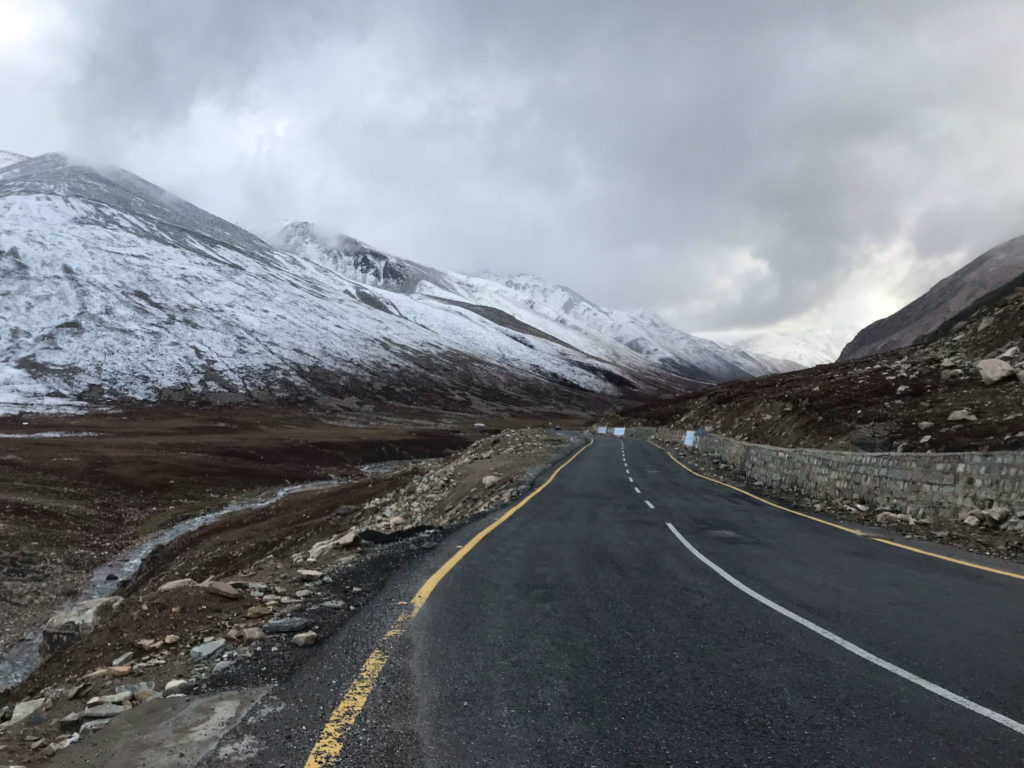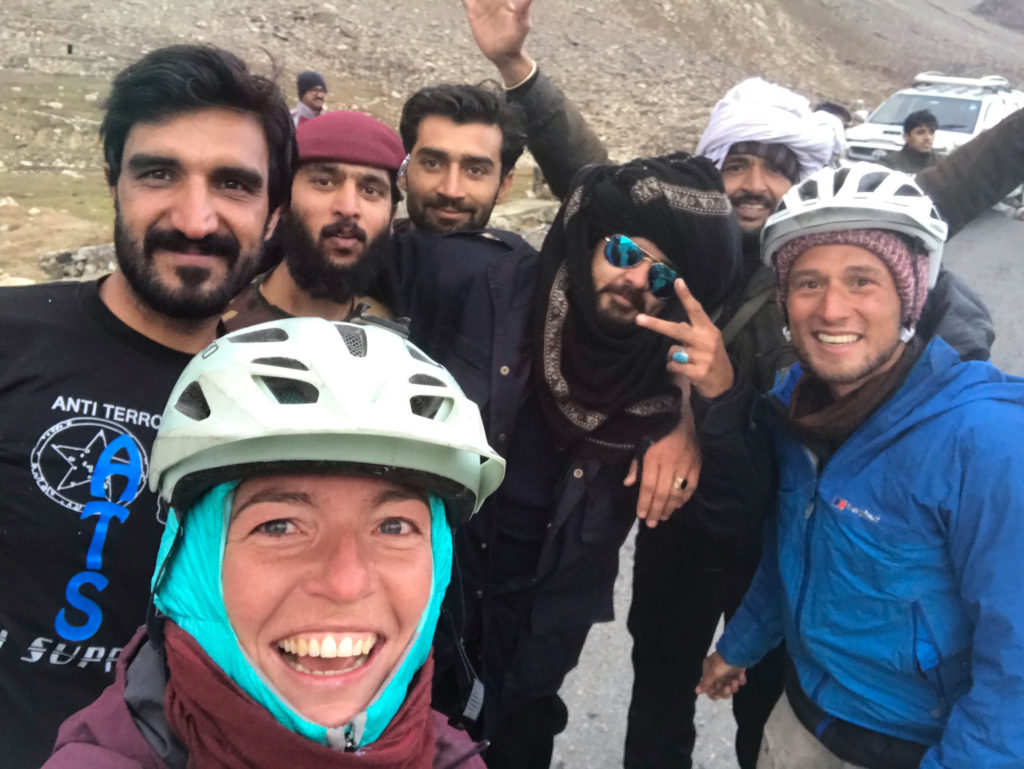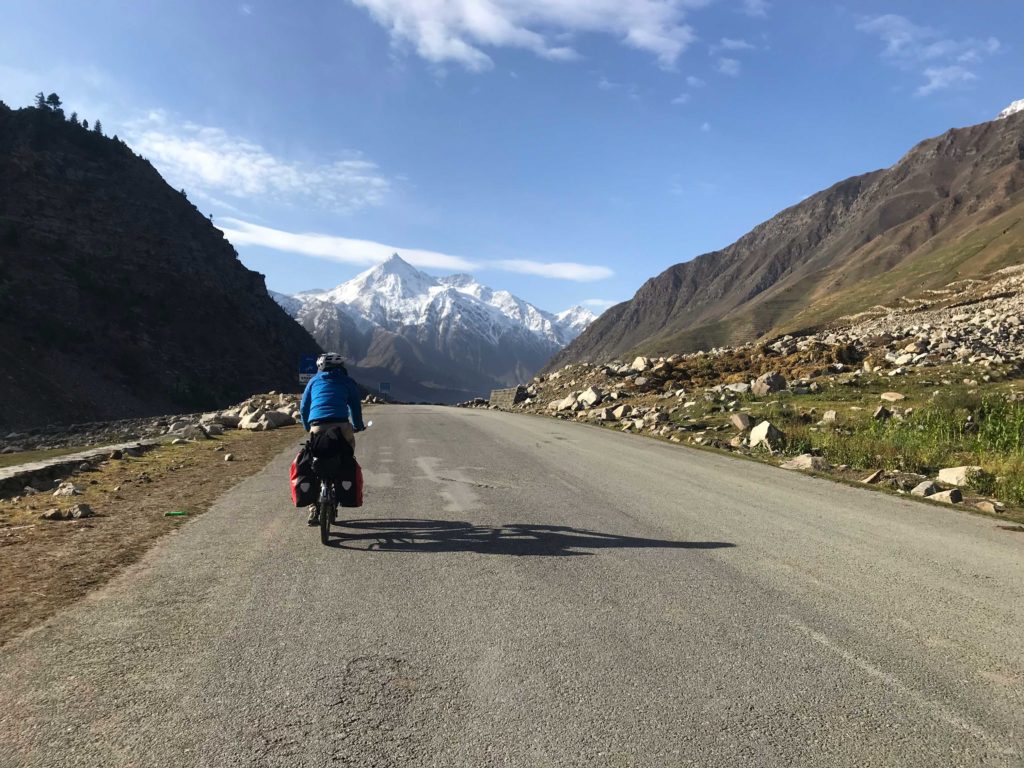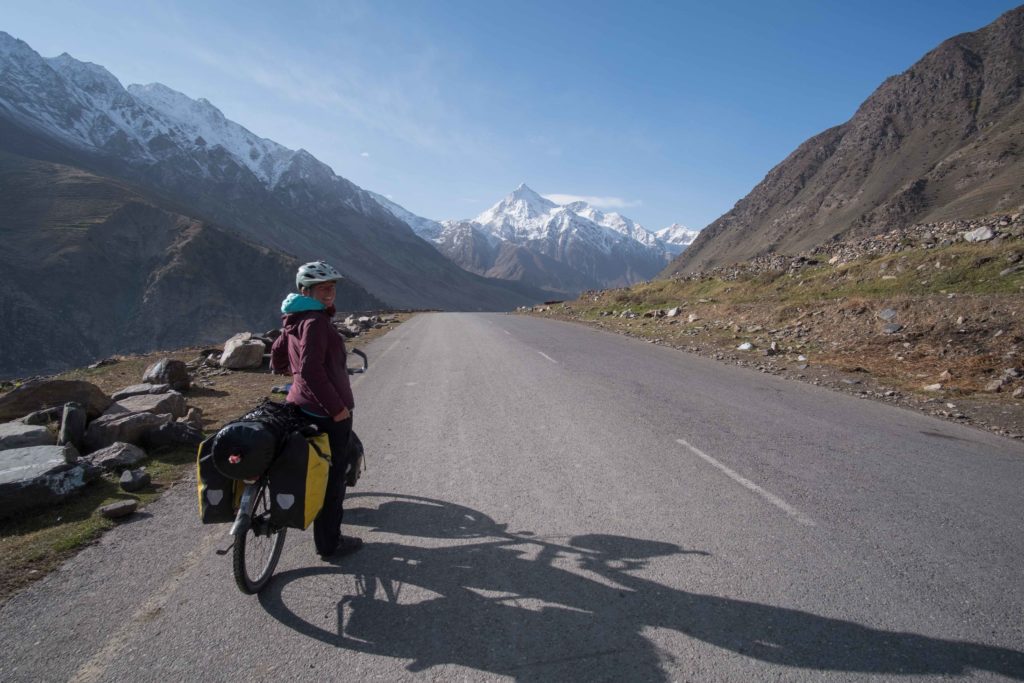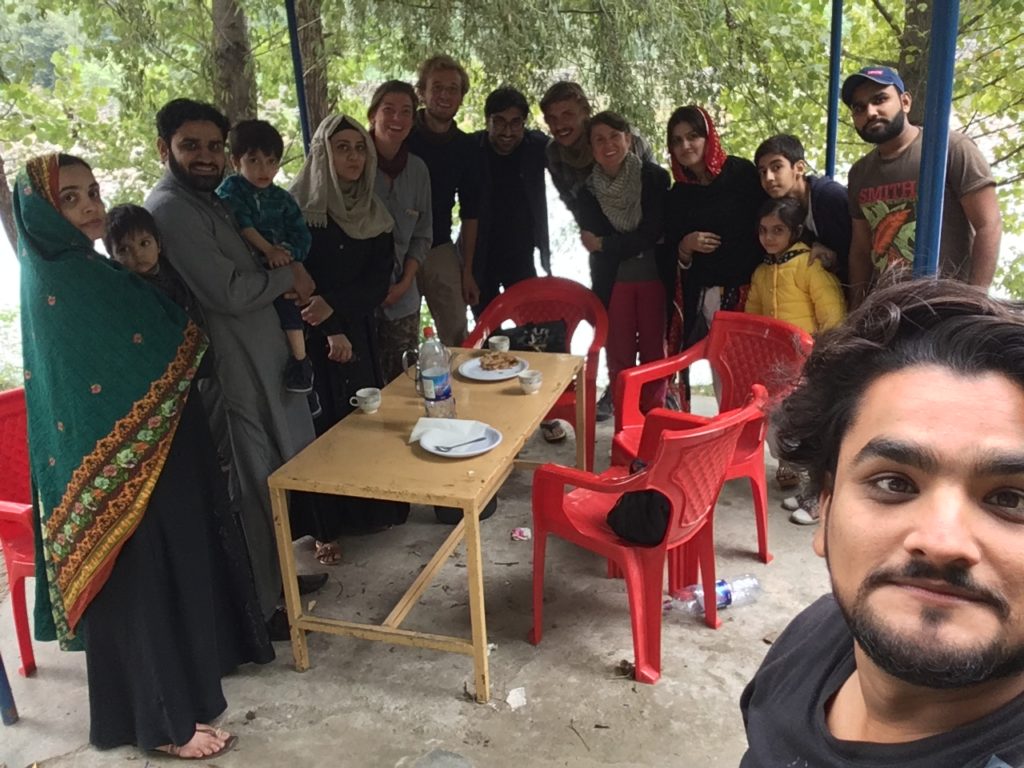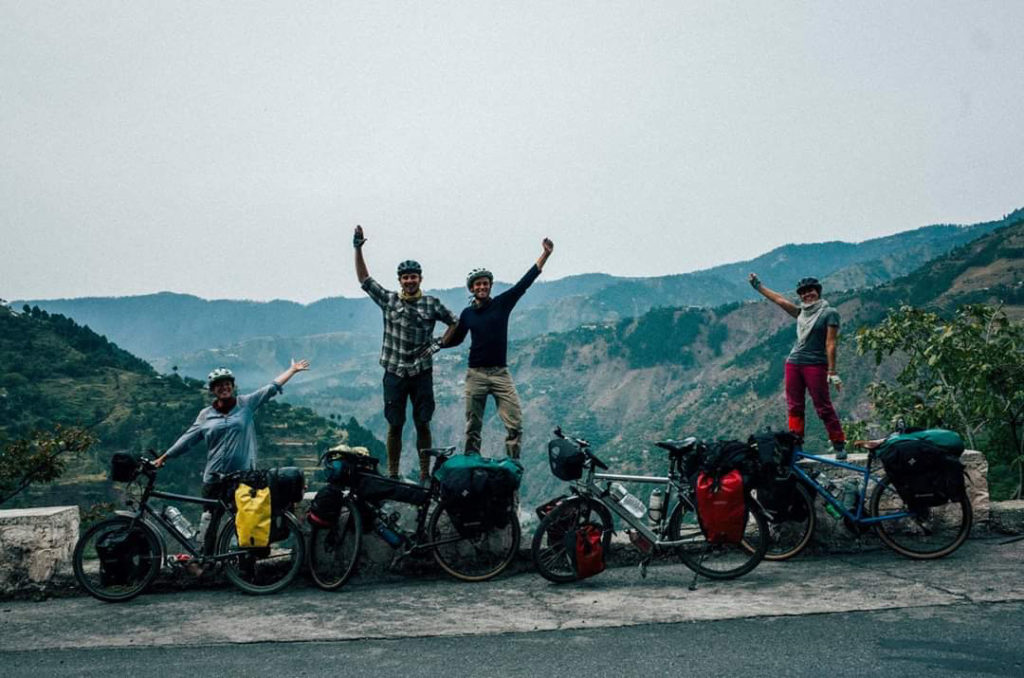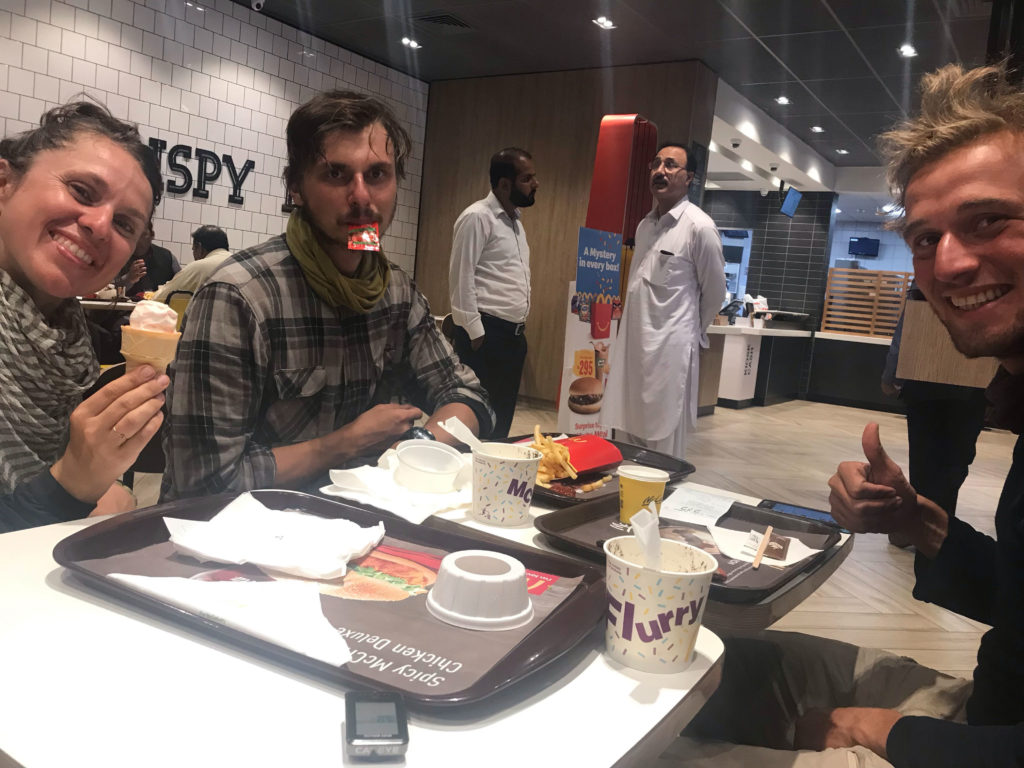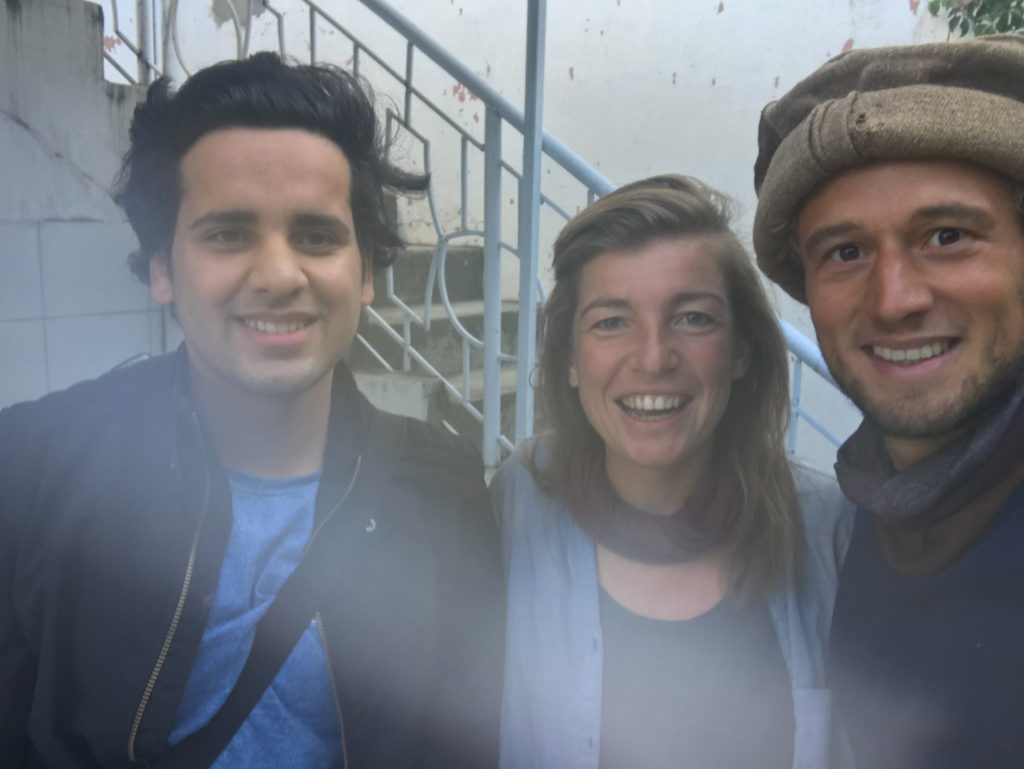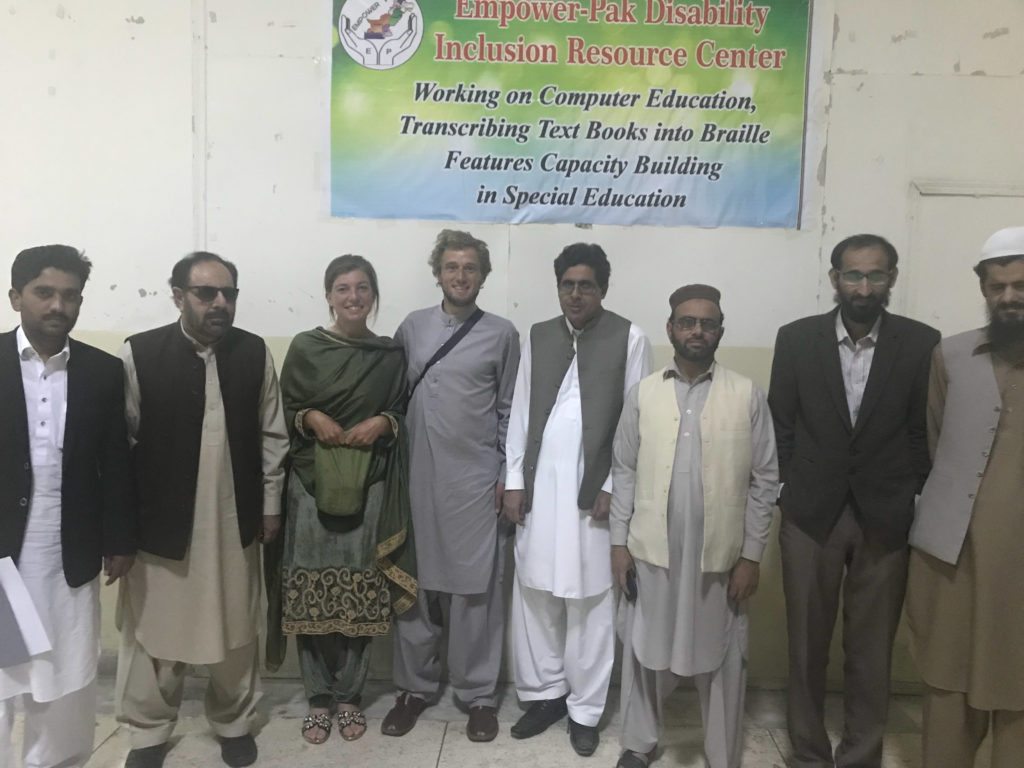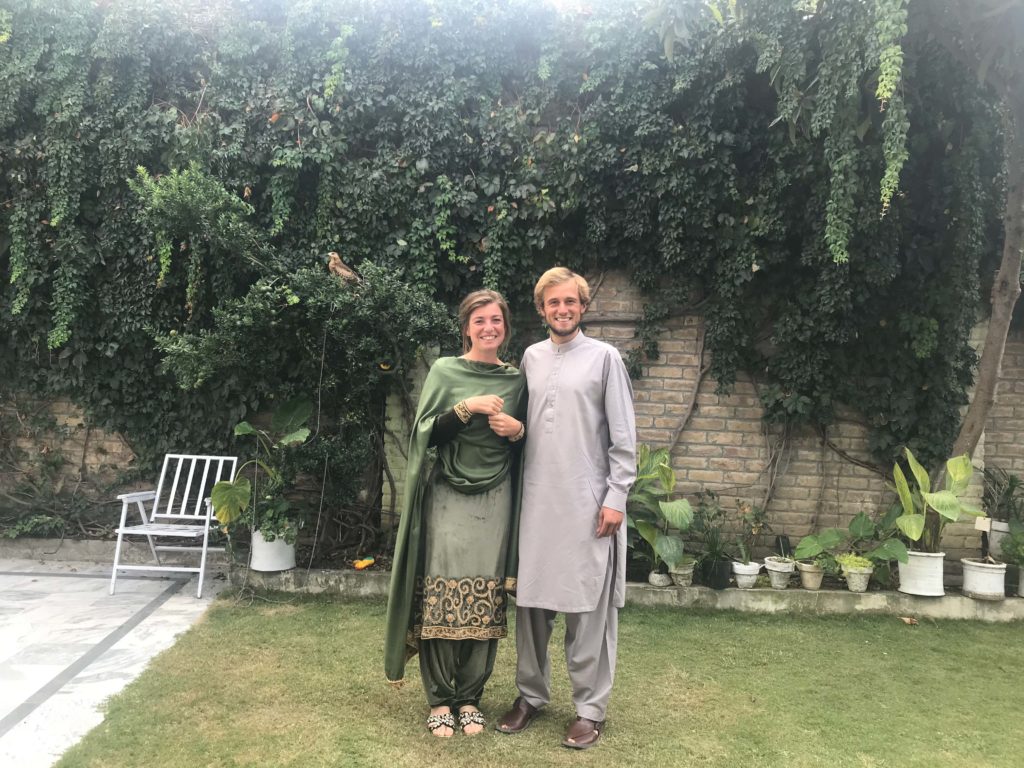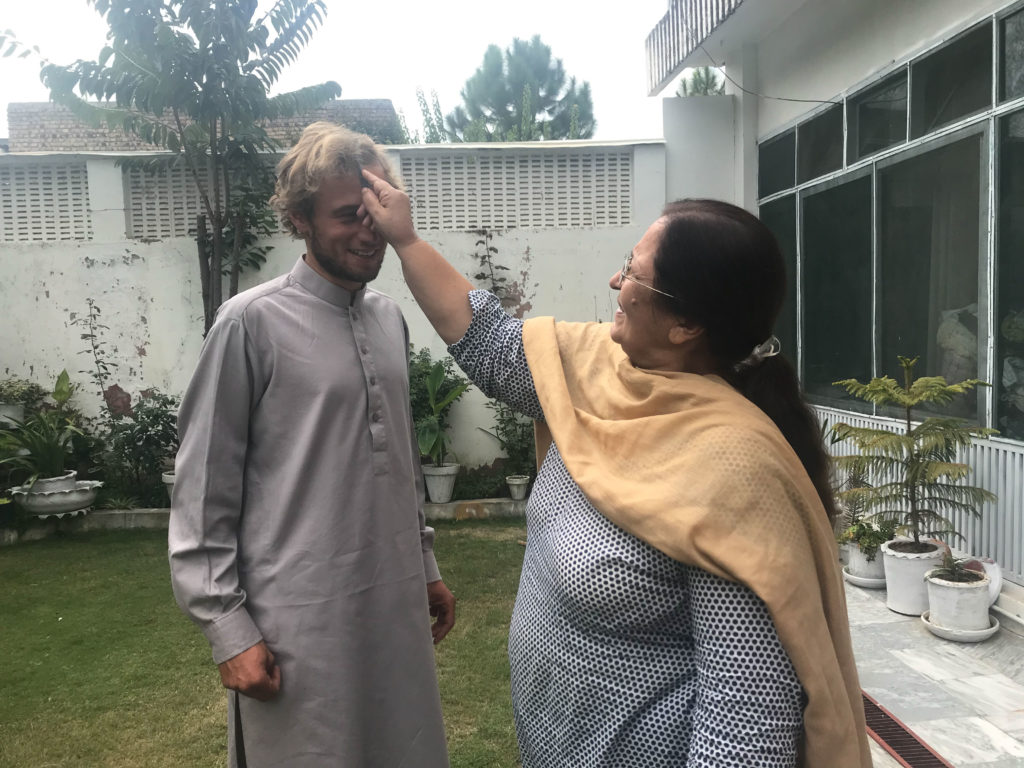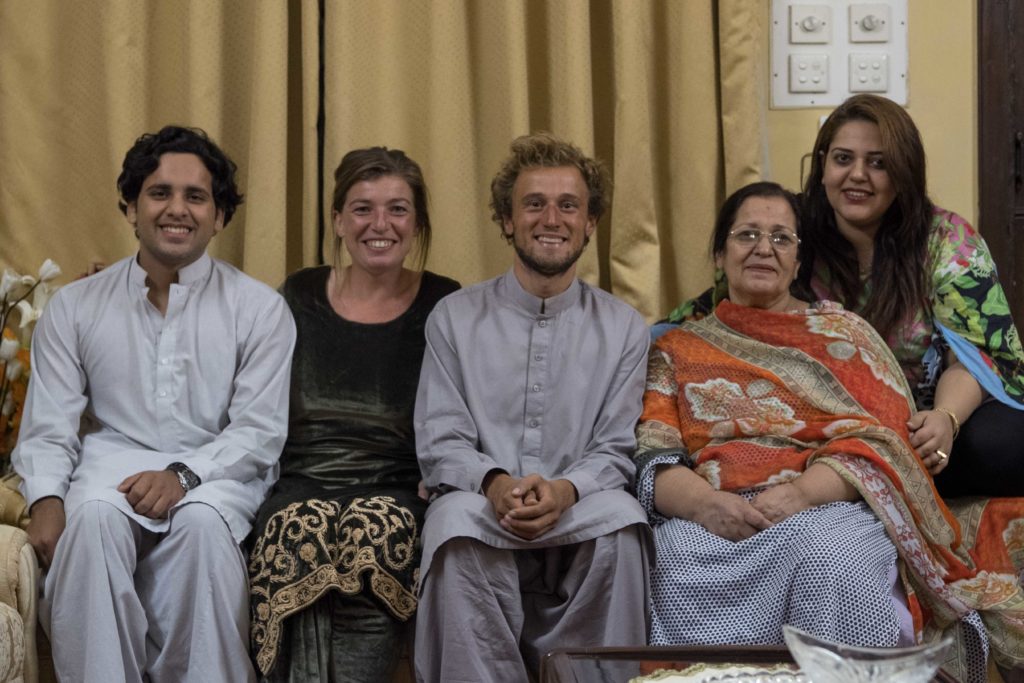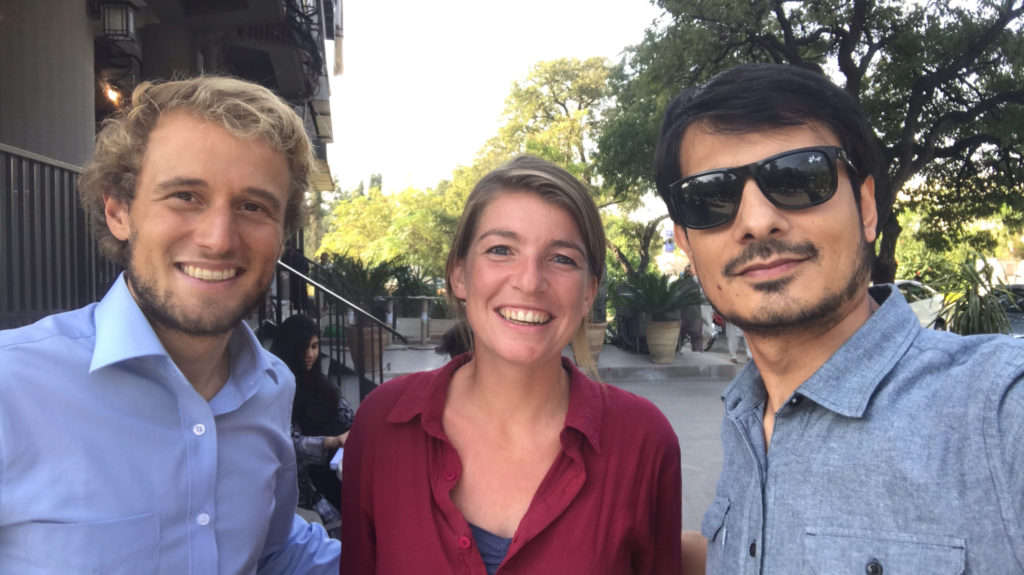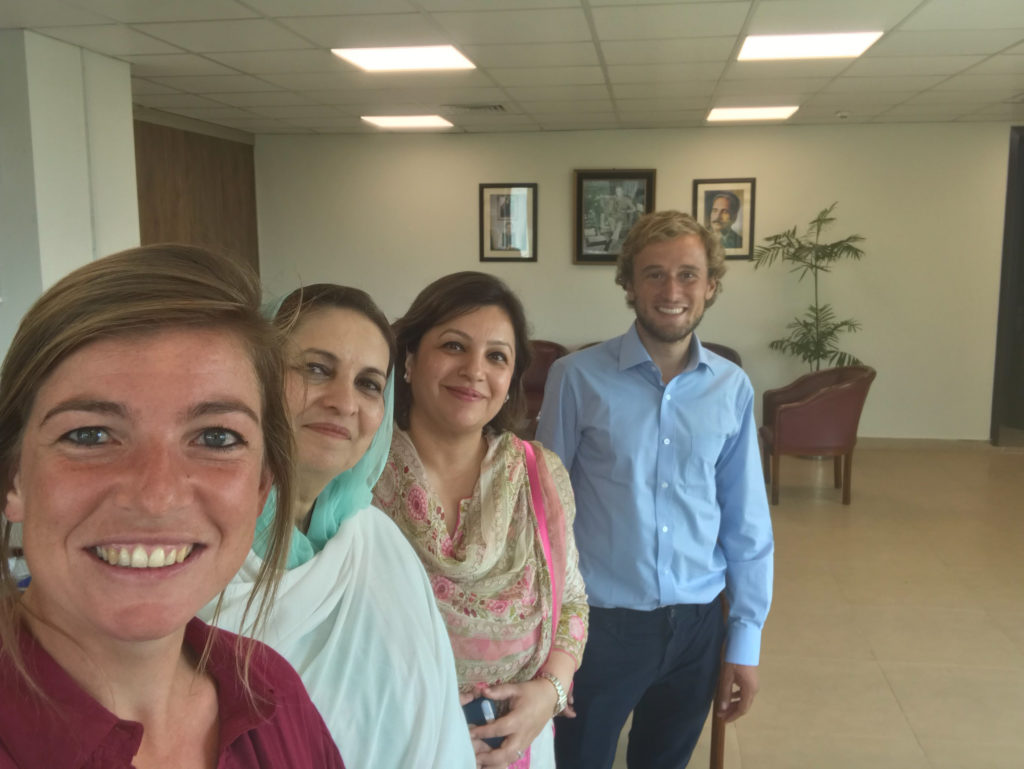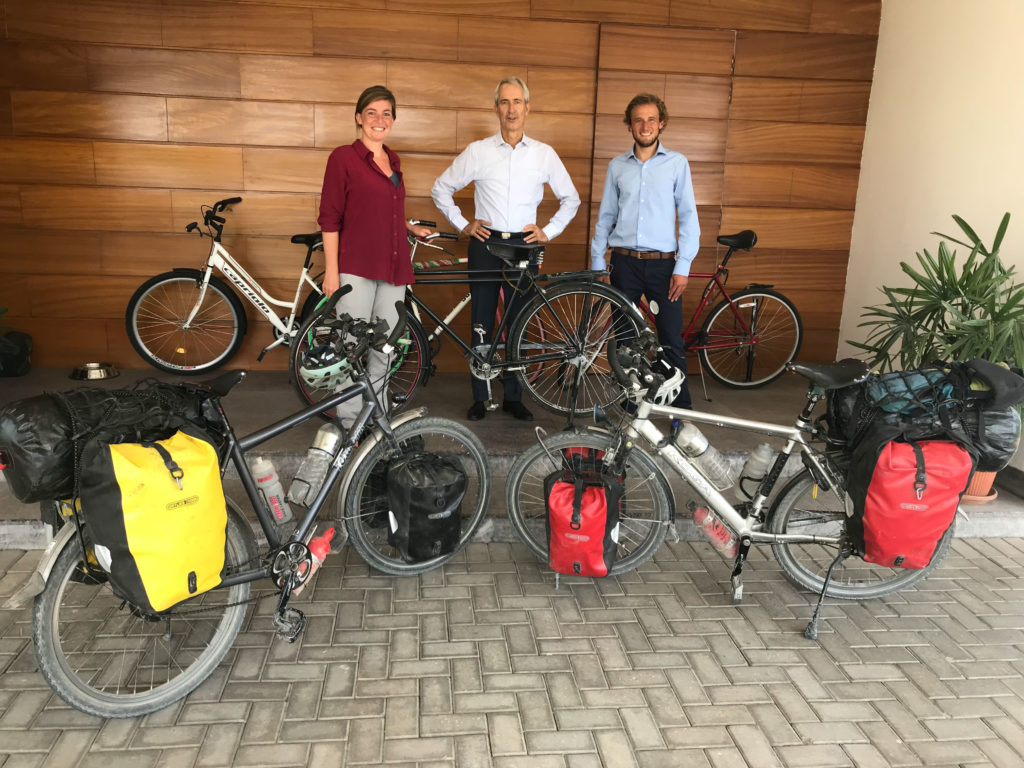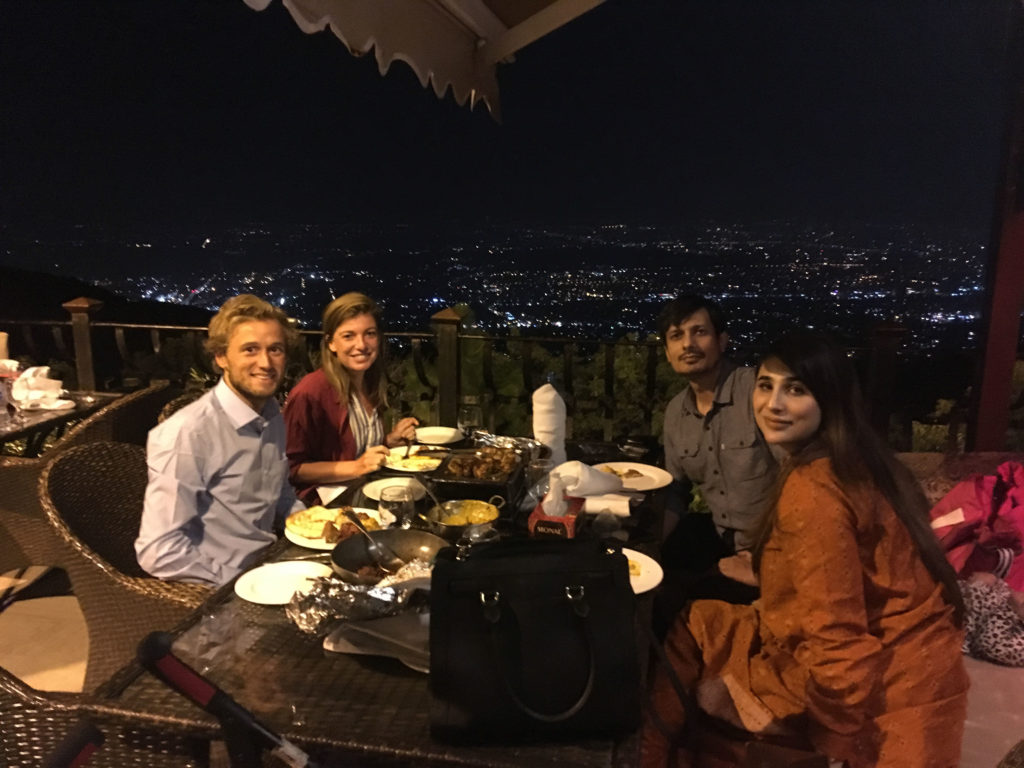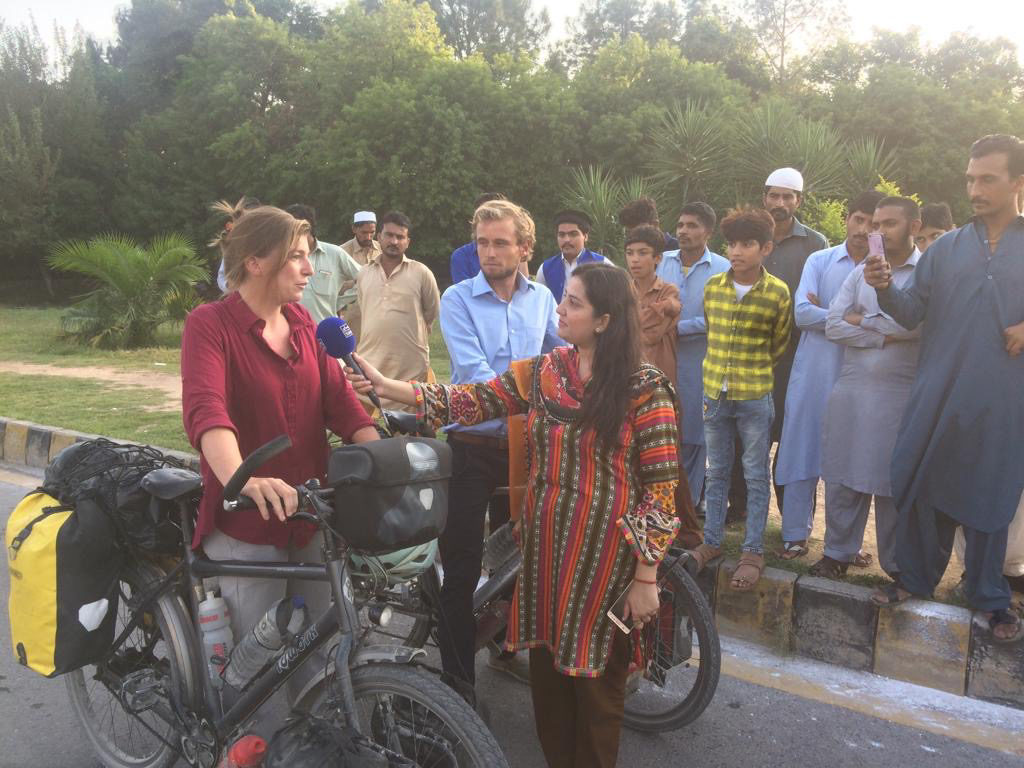Sost (PK) – Lahore (PK) / 11243 km / 5.48 Million Turns / September 19th – October 13th, 2019
Of all the countries that we cycled through, Pakistan was the one we had the most mixed feelings about before we entered. Earmarked in the media as dangerous and terrorist-inhabited, with unrests and protests that could ignite any minute. Revered by cyclists and other travellers as the most hospitable with jaw-dropping nature on the other. We had done our homework beforehand; we had been in touch with the Dutch Ministry of Foreign Affairs, had provided our itinerary to the Dutch Embassy, been in close touch with other cyclists that had just been there and checked our insurance to make sure they would cover us, even though some areas were marked as “red zones” by the Dutch Embassy.
It was the Karakoram Highway that lured us here, one of the highest paved roads in the world, starting from Kashgar in China, over the Khunjerab pass (4693m) connecting China with Pakistan and finishing near the city of Abbottabad, 1300 km south. The road crosses the three highest mountain ranges on earth: the Hindu Kush, the Himalaya and the Karakoram range itself. The construction of this road did not come without risk: more than a 1000 people died (almost 1 per km), mostly because of landslides and accidents. Riding this road was a dream for us though: cycling between numerous 7000+ m peaks, covered in snow, through many super steep green valleys and – not insignificant after the Pamir – on a smoothly paved road!
We were excited to say the least, once we stepped into the mandatory bus from China to Sost, Pakistan. The bus ride itself proved to be thrill already, not only because of the scenery but also because of all the Pakistanis who were in this bus. After police state China, we were happy to find the Pakistani in our bus to be very much talkative, curious and opinionated. What helped a lot was that Pakistani generally speak English well, so that we could actually understand and keep up a whole conversation with them! They were expressive in their opinion about China, not holding back what they thought (not too positive). Expressing these strong opinions was very different from what we had just experienced in China! After only a few minutes on the bus, a very heated discussion between a few Pakistani men started which within no time expanded to the whole bus. Everyone was screaming at each other in Urdu. We both had no clue of what was going on, until one man clarified it for us: one of the men put off his shoes but had, according to the other man, such smelly feet that he had asked him to keep his shoes on, and the first man was now insulted. Although the reason of the discussion was maybe a bit stupid, we were relieved to find silly discussions and human expression like these again.
Our first 24 hours in Pakistan would characterise the rest of our time there very much. Arriving in Sost in the middle of the day, the small bus station was buzzing with men screaming around. Quite a few men came up to us, asking us where we were from and what we were doing. They were genuinely interested in our journey, keen to hear what we thought of Pakistan and if we felt safe. We did the bus ride together with a German couple, Manu and Mia. They are on a long-term hitch-hiking trip and Manu was planning to run the Khunjerab pass marathon that happened to be just a few days after our arrival. It was one of the highest marathons in the world, and besides from being a sports event it was also a bit of advertisement for Pakistan. Although we weren’t in Sost at the time of the marathon, we witnessed a bit of the preparations. We went out for dinner the first night with the four of us when halfway through a group of around 10 men from the Pakistani Air Force entered. They were quite impressive, and to our surprise they quickly turned to us: “How are you doing? Have you got any problems? If you need any help just let us know”. Turned out the Pakistani Air Force was there to both help with all the preparations and because part of them participated. We later heard that although there was a lot of security, it all felt extremely festive and safe with the Air Force cheering along the way. It’s also how we felt in Pakistan in general: yes, there were a lot of men/army people/police walking around with their AK-47s hanging casually over their shoulder. However they were incredibly kind, helpful and (sometimes over-)protective of us.
We had a lot of different things planned in Pakistan, so it sort of became a holiday within our trip. Distances between different places were generally short. And that was a good thing, because we stopped so many times to take pictures and have it all sink in! Our first stop was Passu, known for its views on the Cathedral Ridge. Here we made a day hike to Passu glacier, crossing the Hunza river not just once but twice via suspension bridges. We walked on suspension bridges before in Nepal, but we must say this was of a whole different level. Over 200m long, we were hopping from small plank to small plank (sometimes not much more than a twitch) with in between sometimes about a meter distance, rusty cables and a pretty big wild river below. It tested our (ok, mostly Sabine’s) nerves a lot. It was not until two local ladies had made it all the way to the other side that we dared to go as well.
As we went a little more down along the Karakoram Highway, we made it to the Hunza Valley, embedded between many 7500m peaks. The views here are some of the best and being so close to these peaks it’s hard to believe they are so high. We hiked up to Rakaposhi basecamp at 3500m, where we had one our most impressive viewpoints over the huge glacier and Mt Rakaposhi (7788m). Unfortunately, on the way back Sabine fell ill and we were stuck in our guesthouse for a while. The guesthouse was one of the loveliest places to be stuck though, with a very nice owner who helped us get the right medicine and who tried to put Sabine on a stomach-safe diet. Sabine however did not totally agree with this diet, and soon we had Tom sneaking in the room with different kinds of “forbidden” fruits from the garden and prohibited omelettes (only boiled eggs were deemed safe).
Another highlight in Pakistan was our side trip to Fairy Meadows and Nanga Parbat basecamp. Just before, we had met Pavel and Żanna, a cycling couple from Poland. We decided to do this side trip with the four of us, leaving our bikes at a small hotel down in the valley. The first part up to Fairy Meadows can only be done by jeep. Not just any jeep, but around 30 years old, painted in fancy colours, without seat belts or power steering. We had heard about this infamous ride: it would be steep, narrow and the road would have a sheer vertical drop right next to it, often hundreds of meters deep. And we were not disappointed, clinging on to the steel in the jeep, we could many times see no more than 10 cm of space between the wheel and the drop next to the road! With Pakistani music blasting out of the radio and our driver laughing at seeing our nerves, it really was a memorable ride. To our surprise we did not see a single jeep down in the ravine, and our driver remained silent to our question if ever cars crashed down. On our way back, our same driver notified us that just the evening before there had been a landslide and they were still fixing the road (literally using only a hammer!). This road is probably the most scariest one we ever went over, not even close to the infamous ‘Death Road’ in Bolivia which Sabine crossed a few years ago.
Fairy Meadows itself was an impressive sight too. The meadow is lined with trees in beautiful autumn colours, and the wall of the Nanga Parbat mountain range is dauntingly rising behind it. With the four of us we walked up to this mighty wall of rock, all the way up to the nearly 4000m high base camp. In contrast to our other trip to Rakaposhi basecamp, this time we were a bit less prepared for the cold conditions as to save weight we left quite some gear with our bikes in the valley. In our thin trousers we defied a small snow storm hiking towards the base camp, got lost for a bit, but also managed to find our way back again climbing through a dried-up riverbed. Upon arrival we put up our tent as soon as possible and snuggled in our sleeping bags to stay warm. It was cloudy anyway, so we felt less guilty about staying inside. We spent the night struggling to stay warm and listening to multiple avalanches going down around us. In the morning however, the skies were crystal blue and the ground was covered in a little layer of fresh snow. The wall of ice and snow that was the Nanga Parbat range that towered over us, left us admiring the power of Mother Nature. We enjoyed watching a few more avalanches before we made our way down again, musing over the fact that the PHolandish expedition team had succeeded in their first Nanga Parbat (basecamp) summit push.
After Fairy Meadows we cycled further south to the town of Chilas. Just after we would hit the steepest and most brutal climb of the entire trip, Babusar Pass. Climbing it would mean an ascent of 3000 vertical meters in 40 km (for cycling or Tour de France lovers, this is roughly the same as going up Mt. Ventoux, twice!). We also needed to do it in one day with an armed escort following us as you are not allowed to camp anywhere between Chilas and the top. We didn’t feel the need to cycle this beast, so we decided to hitch a ride up. Upon arrival at the pass though, there was suddenly a large gathering of cars and people. Apparently, that day it had snowed on the pass for the first time of the year and they would not let anyone go up until it was cleared. The army men told us no way we would be able to go up this day, but since we had nothing better to do and did not really want to stay in Chilas, we decided to wait for a couple of hours to see what would happen.
And indeed, after 3 hours of waiting suddenly the whole collection of cars started moving all of a sudden and all at once. It was a hilarious situation to watch. We managed to flag down a little truck that would take us to the top. However, we were stopped an army guy, because he thought it would be too cold for us in our cycling outfit. Only after we put our warm jackets on was he convinced we would be OK for us (it was still 30 degrees here at the bottom of the pass!). We stood in the back of the truck enjoying the ride, happy to not be cycling this steep part, and going more up indeed it got quite cold. When the truck stopped, the other passengers inside the front of the truck offered us to change place with them. We declined, but they would not take no for an answer. We offered them our warm jackets and hats as reciprocity but still upon arrival at the snow-covered top they were trembling uncontrollably from the cold.
Babusar Pass would be the last big obstacle before a big downhill ride all the way to Islamabad. It was one hell of a downhill ride, cruising from high plains, down through first pine trees and then jungle. Just after the top we noticed a group of men dancing and singing on the street. They were celebrating the first snowfall of the year and invited us to dance with them and have some chai. Just as we got our chai we noticed they had jackets on with “one shot one kill” written on it. They were from the Pakistani anti-terrorist squad and welcomed us to their group warmheartedly. We had a nice chat and dance with them, but when they started shooting their AK-47s in the air, we used it as a warning shot to head on and try and get to a hotel before dark. In the cold we managed to get to a simple hotel just after dark and again were invited in with loads of food and chai.
Pavel and Żanna caught up with us again, and we cycled together for the next few days. Not only was the scenery spectacular again, we met so many nice people on the road. Many who just wanted to strike up a conversation with us, to hear what we were doing and of course what we felt about Pakistan. Plenty offered us tea or food, or accommodation, sometimes many kilometres away or even at the other side of the country in case we ever made it there. We had countless “one selfie please, sir”-questions from cars passing by. Expecting to have a quick photo and then being able to move on again, most of the time there would not just one or two persons step out of a car but a whole family of at least seven, all wanting photos and selfies in different compositions. It was quite amusing.
These encounters on the road were never without risk though. It seemed that many of the people who started a conversation (mostly with Tom) while riding a motorbike, then forgot that they were actually still driving and either ended up at the wrong side of the road with Tom pulling them straight again or they would cut us off the road.
In Abbottabad we enjoyed our first McDonalds in many months together with Pavel and Żanna. After that we split up (temporarily) with Pavel and Żanna and stayed with Mohammad and his family. We got in touch with him through another cyclist and he and his family welcomed us with open arms. While Mohammad was studying his mother and father took care of us: we were invited for a lunch in the hospital Mohammad’s father managed, dressed up in borrowed traditional clothes from different family members. Tom was not allowed to leave until Mohammad’s mother had brushed his wild hair and we had a whole photo shoot in their garden. His father then took us for a tour to his NGO which printed school books in braille for visually impaired kids and entertained us in the evening with many stories about Pakistan and Osama Bin Laden’s capture in this very city a few years ago. We felt sad to have to leave Mohammad and his family so soon again, and again left feeling a bit flat. However, it was time to move on the Islamabad. Here Arsalan, a cousin of a former colleague of Tom, was waiting for us. We arrived there as two smelly, dirty cyclists in old clothes, only to be put in a super nice hotel by Arsalan. Arsalan made very sure we were not short of anything during our stay, showing us around in the city in between his work, lending his driver to us to go around, taking us out to the fanciest restaurants in the evenings and organising a meeting and lunch with the Dutch Ambassador and the parliamentary Secretary of Health. It was a rollercoaster ride in Islamabad, with as grand finale two interviews with news channels on our last day.
Mohammad in Abbottabad, Arsalan in Islamabad and so many others in the few weeks we were in Pakistan, it’s a cliché but the people you meet really make the journey. We were taken in with so much warmth by so many people that our Pakistani experience couldn’t be further away from how the country is represented in the media. Yes of course, there are still many unsafe places, security problems and societal aspects that could improve. We however, didn’t feel uncomfortable anywhere and Pakistan easily made it into the top of our visited countries so far.
Talk to you soon!
Tom & Sabine


